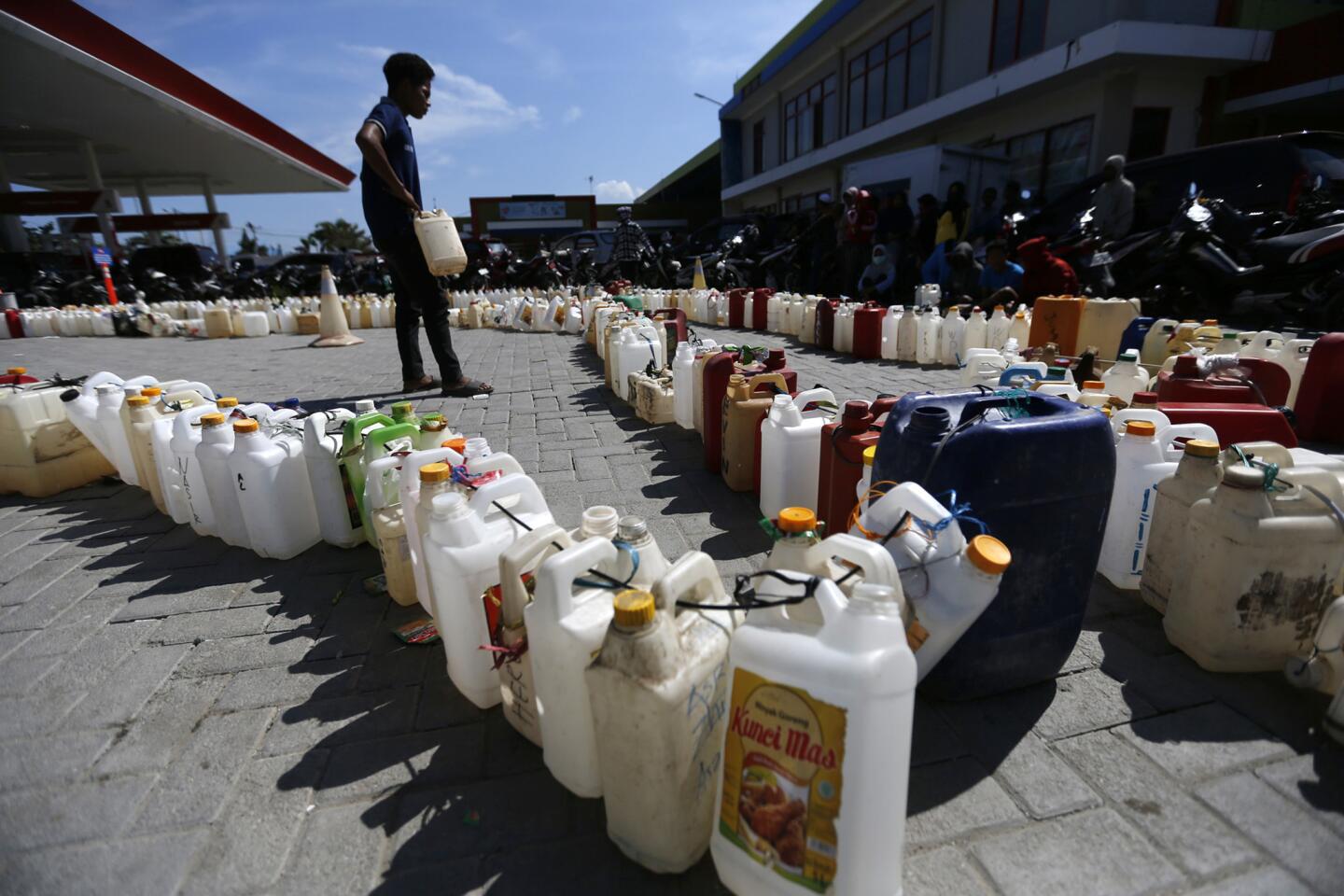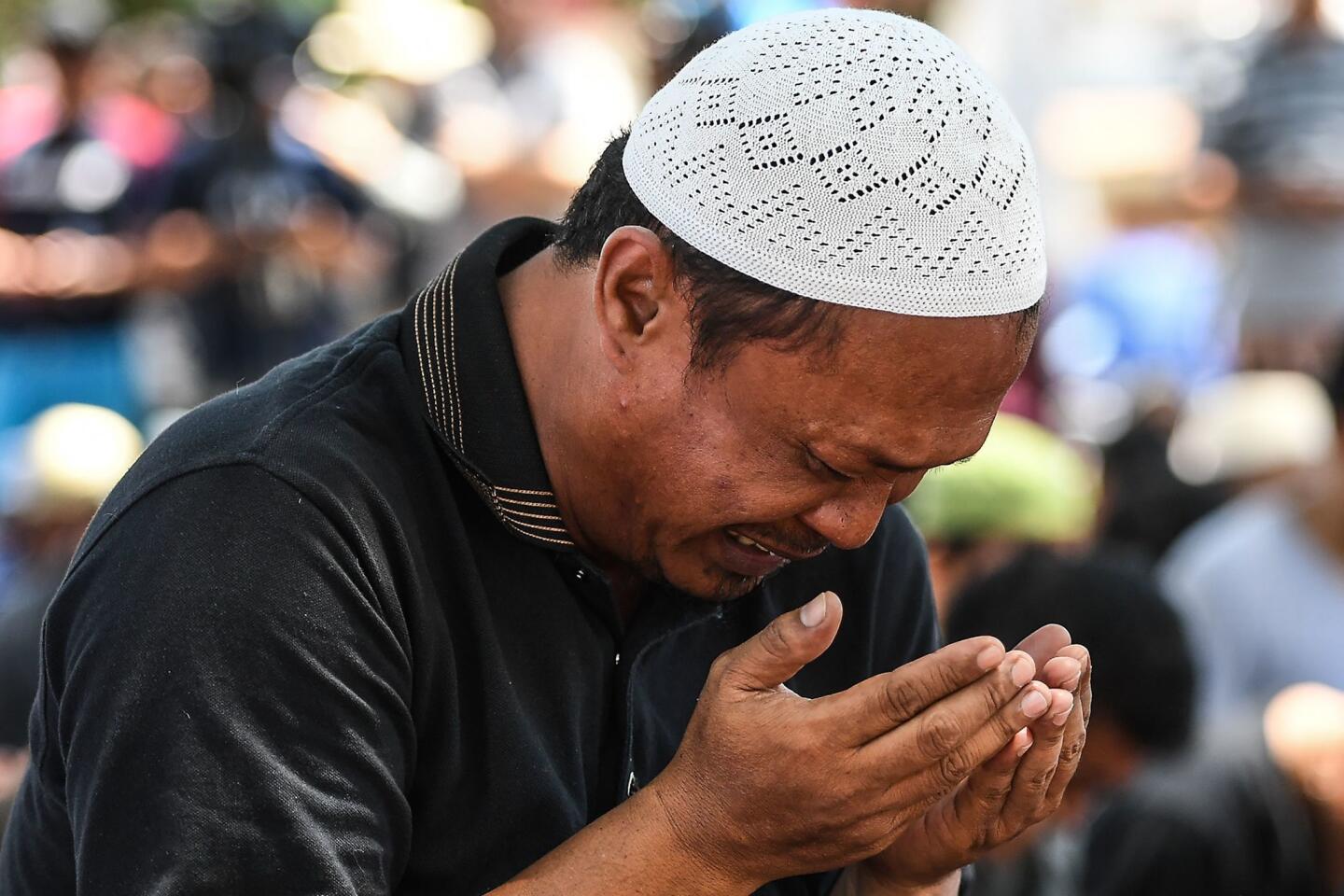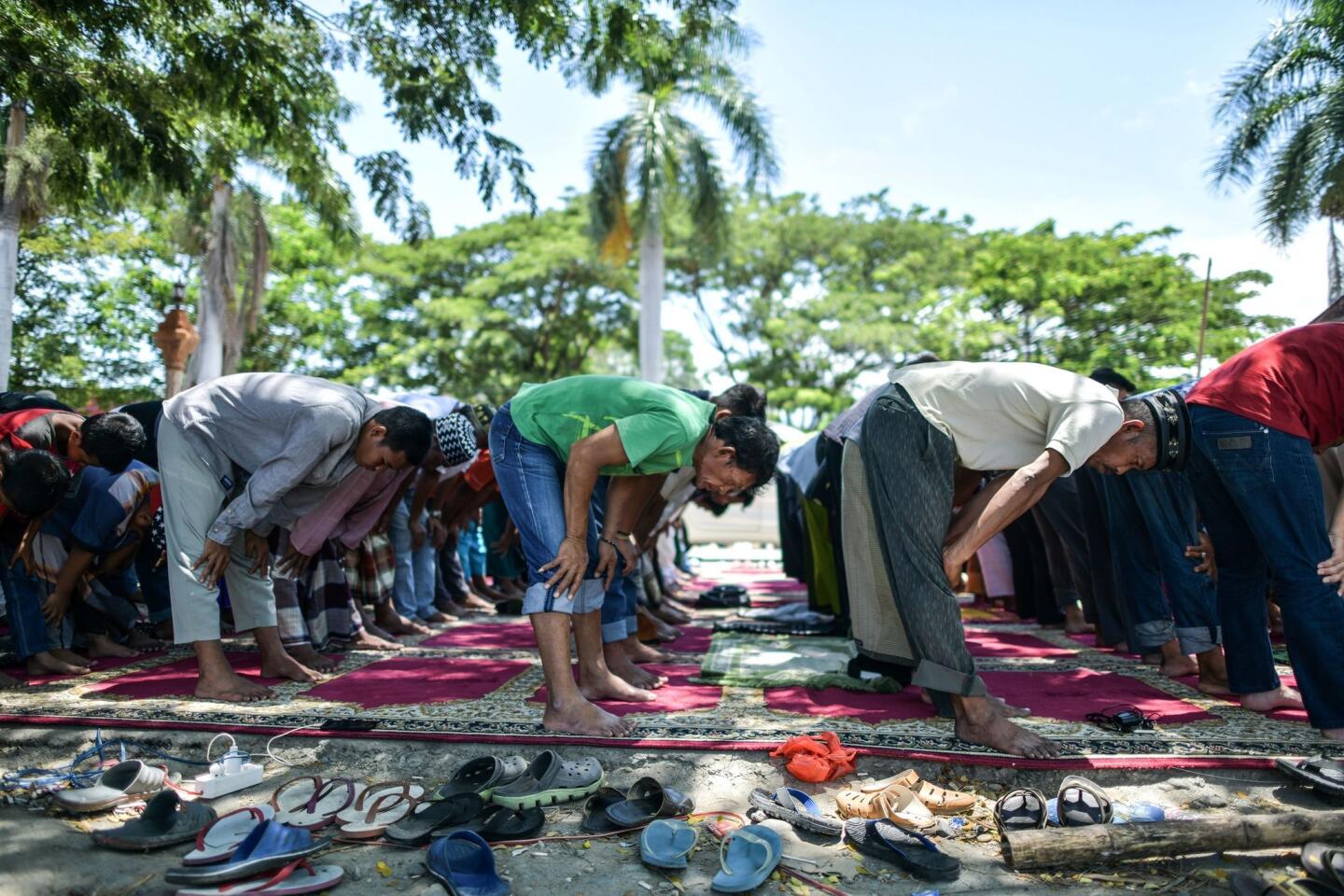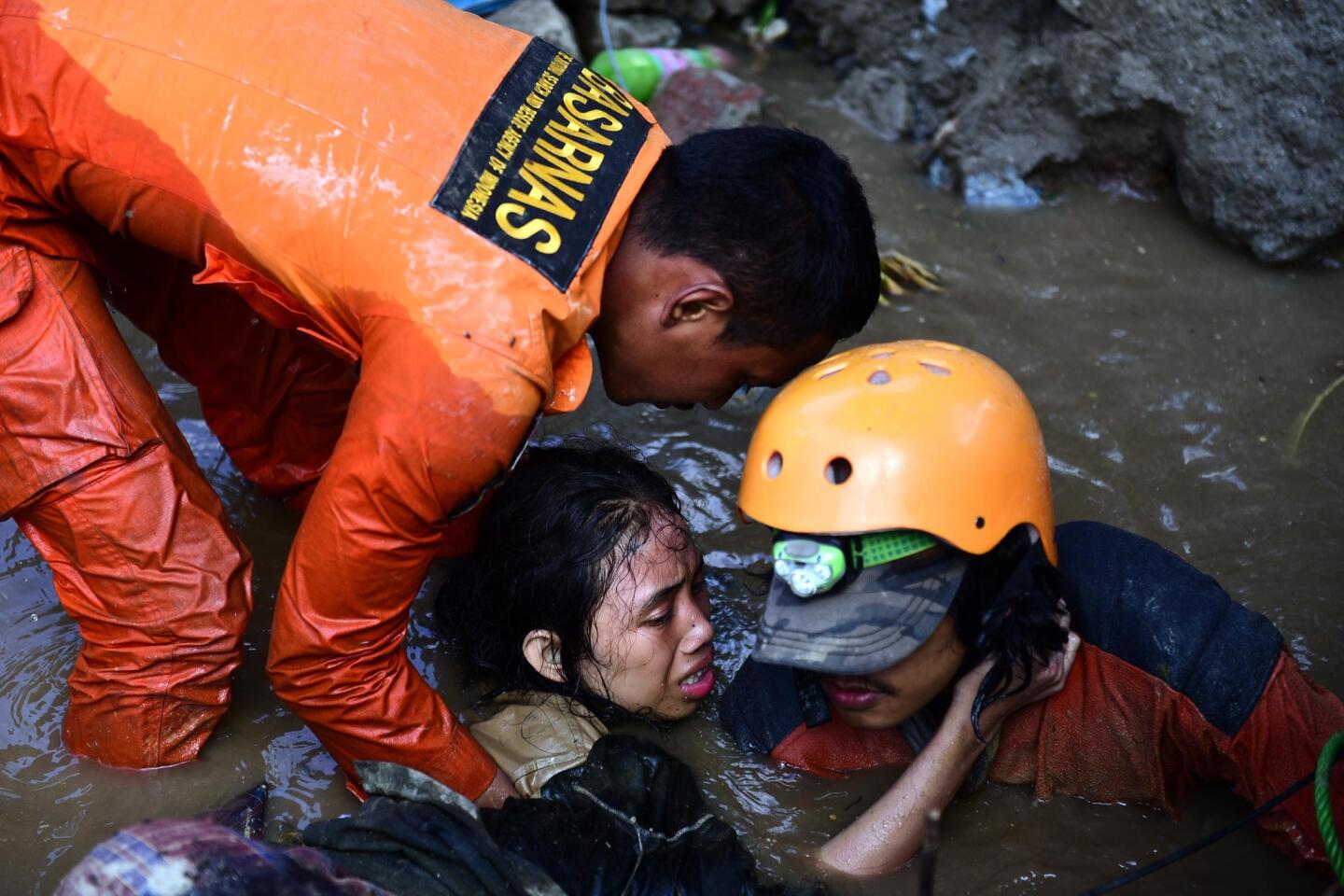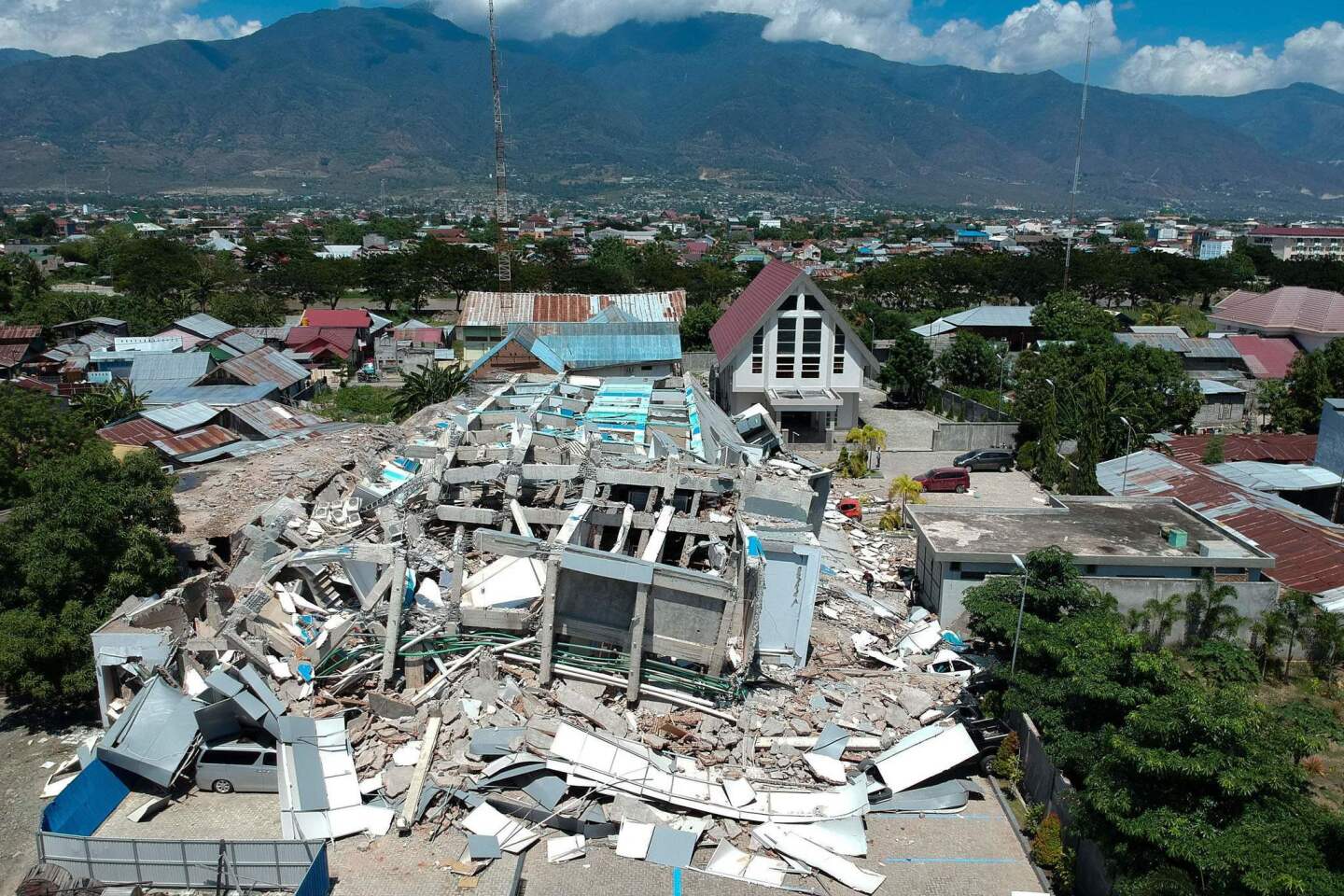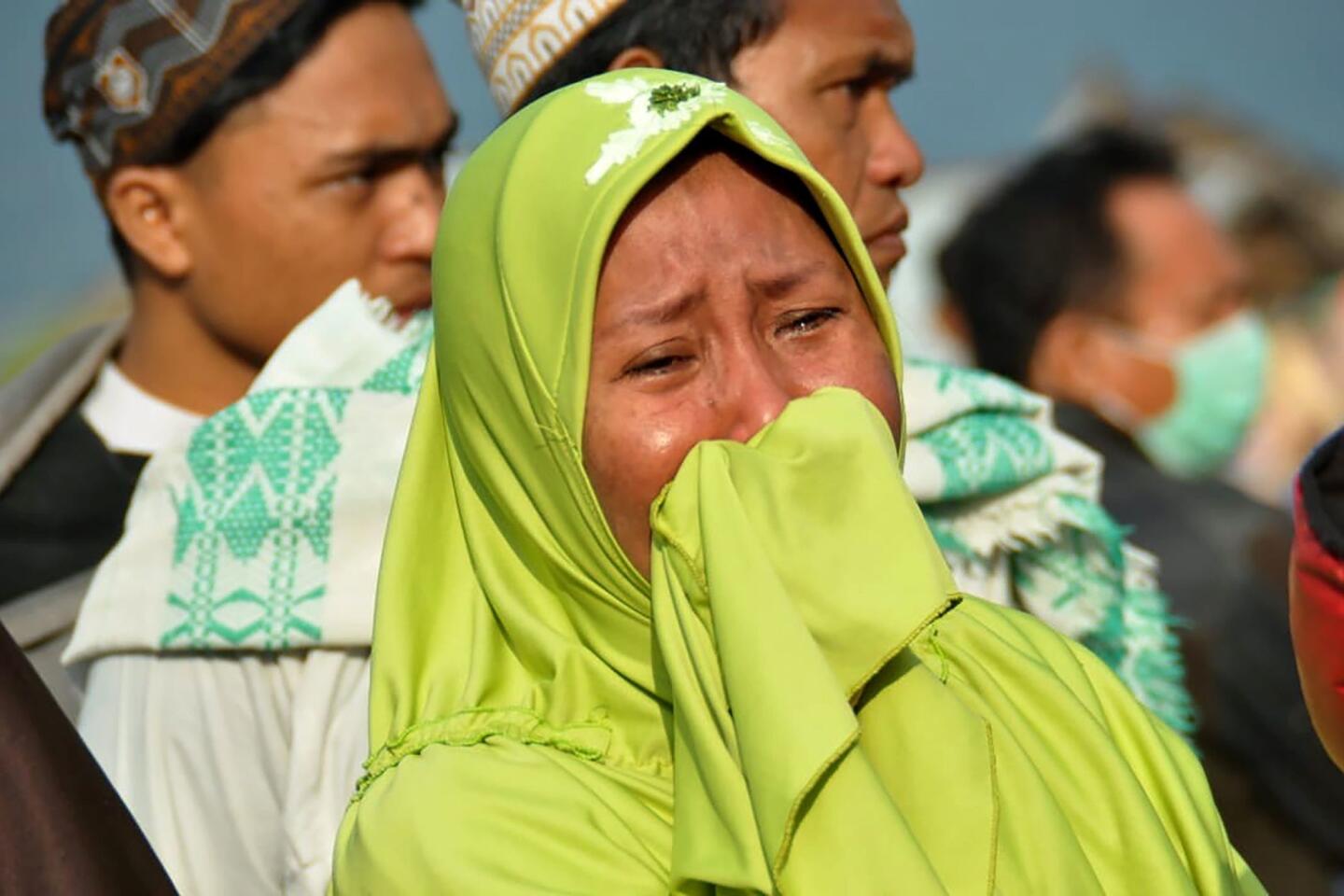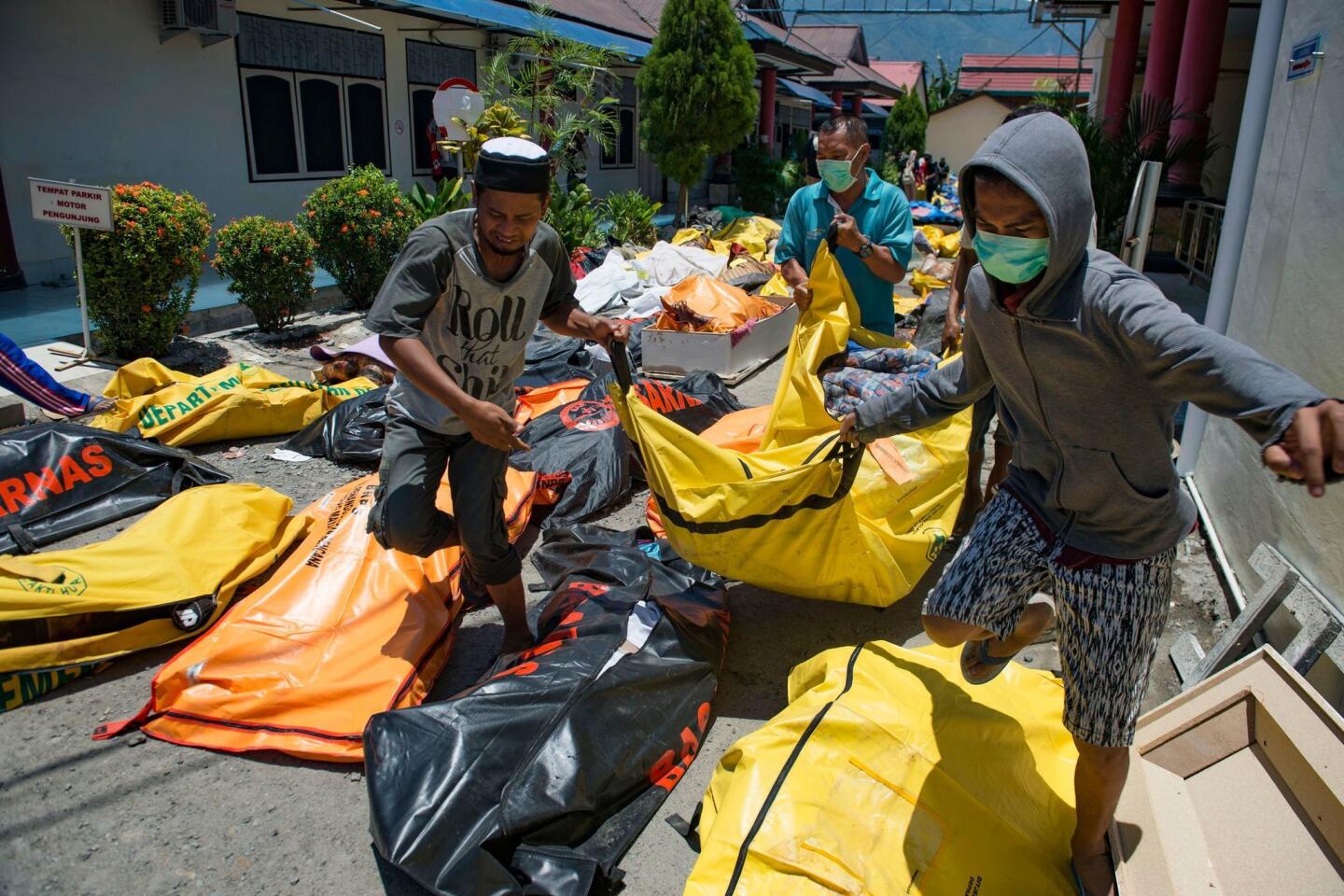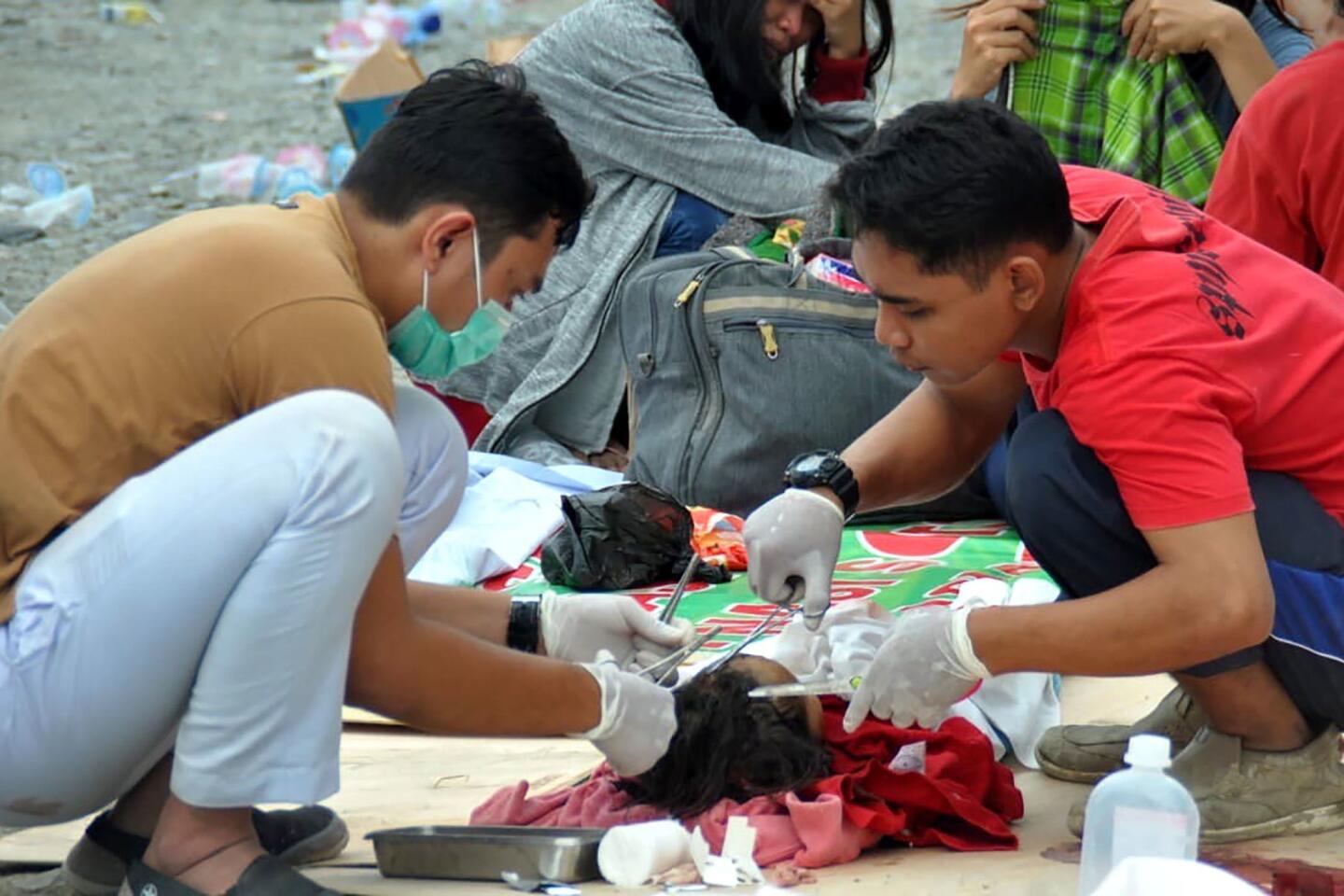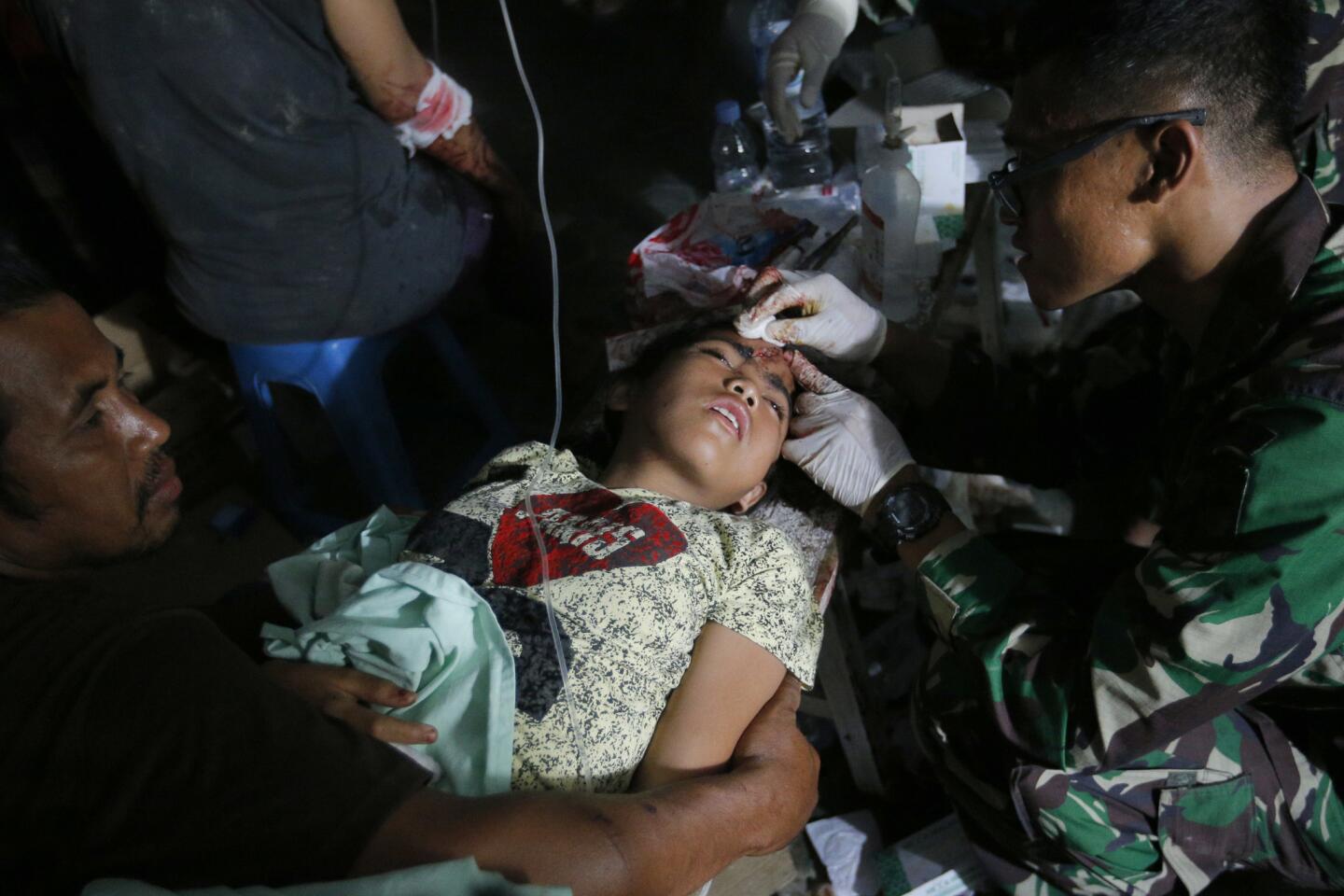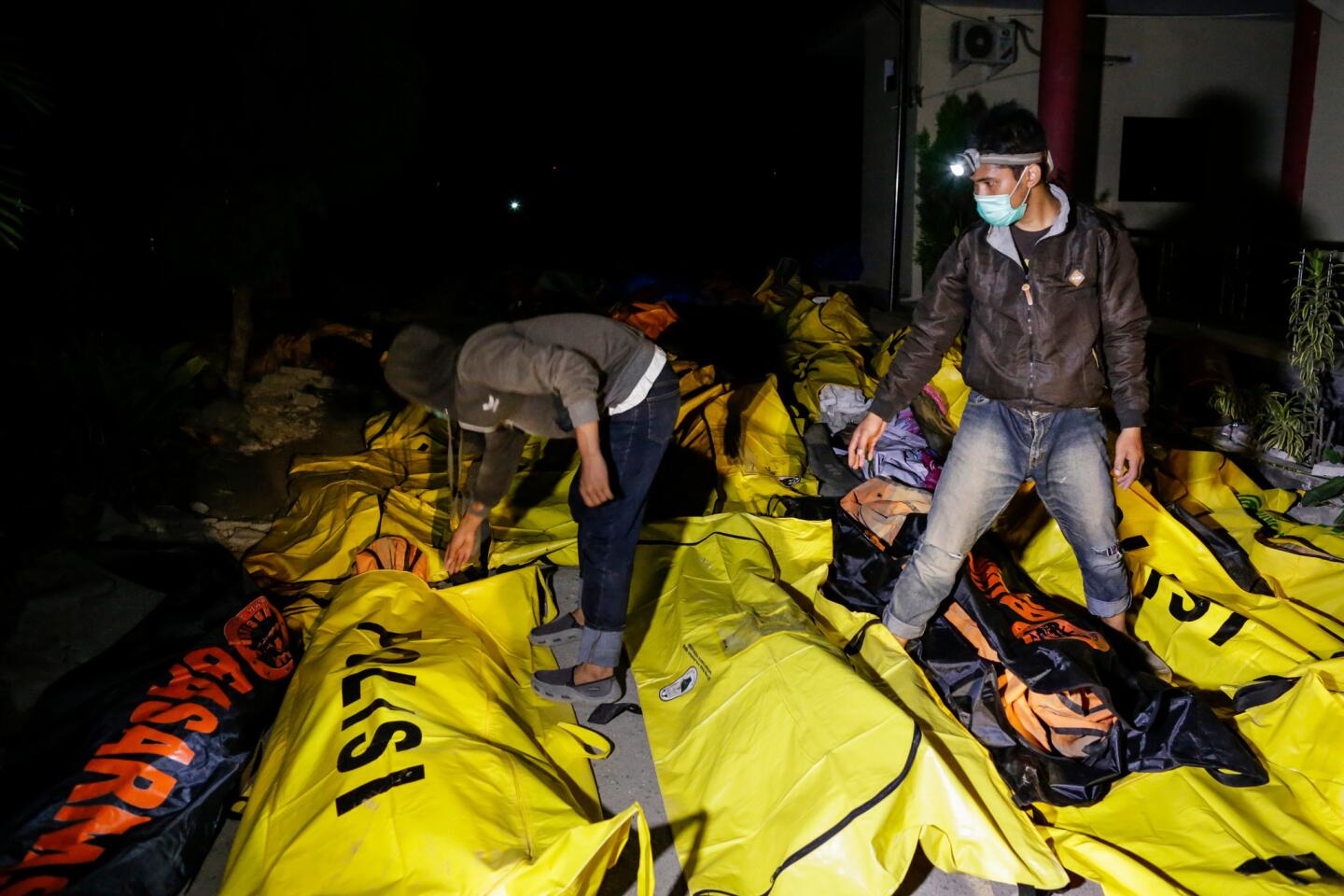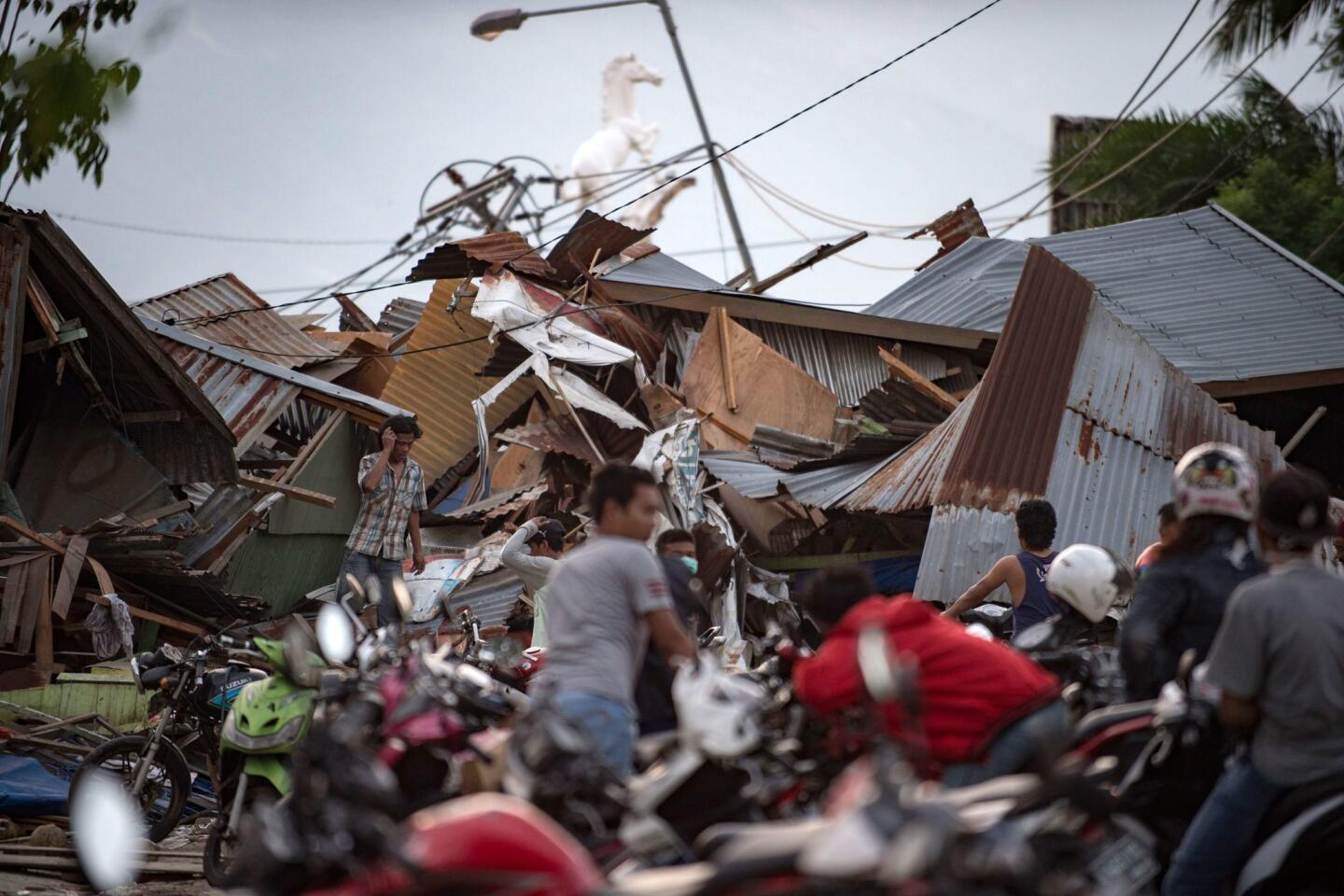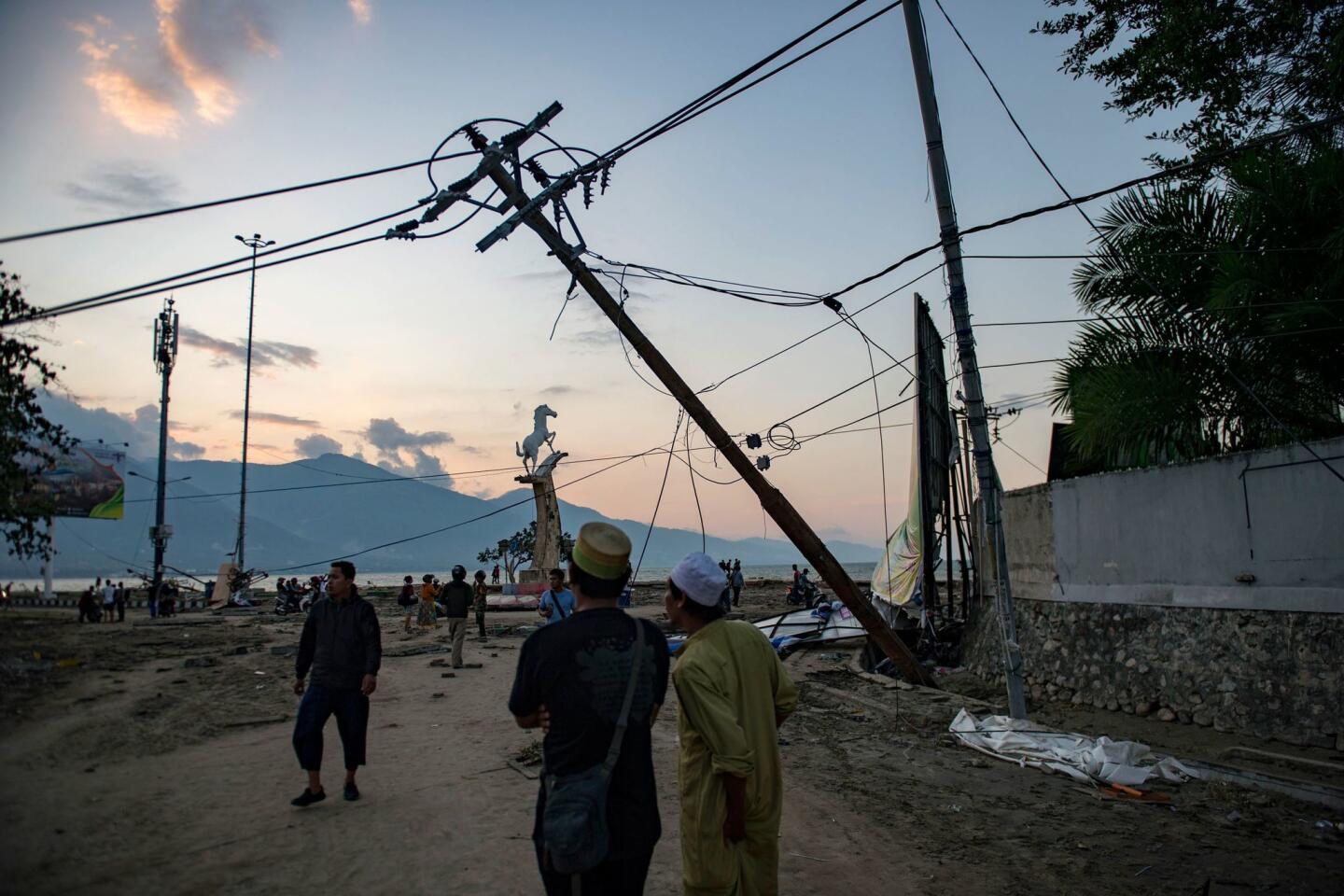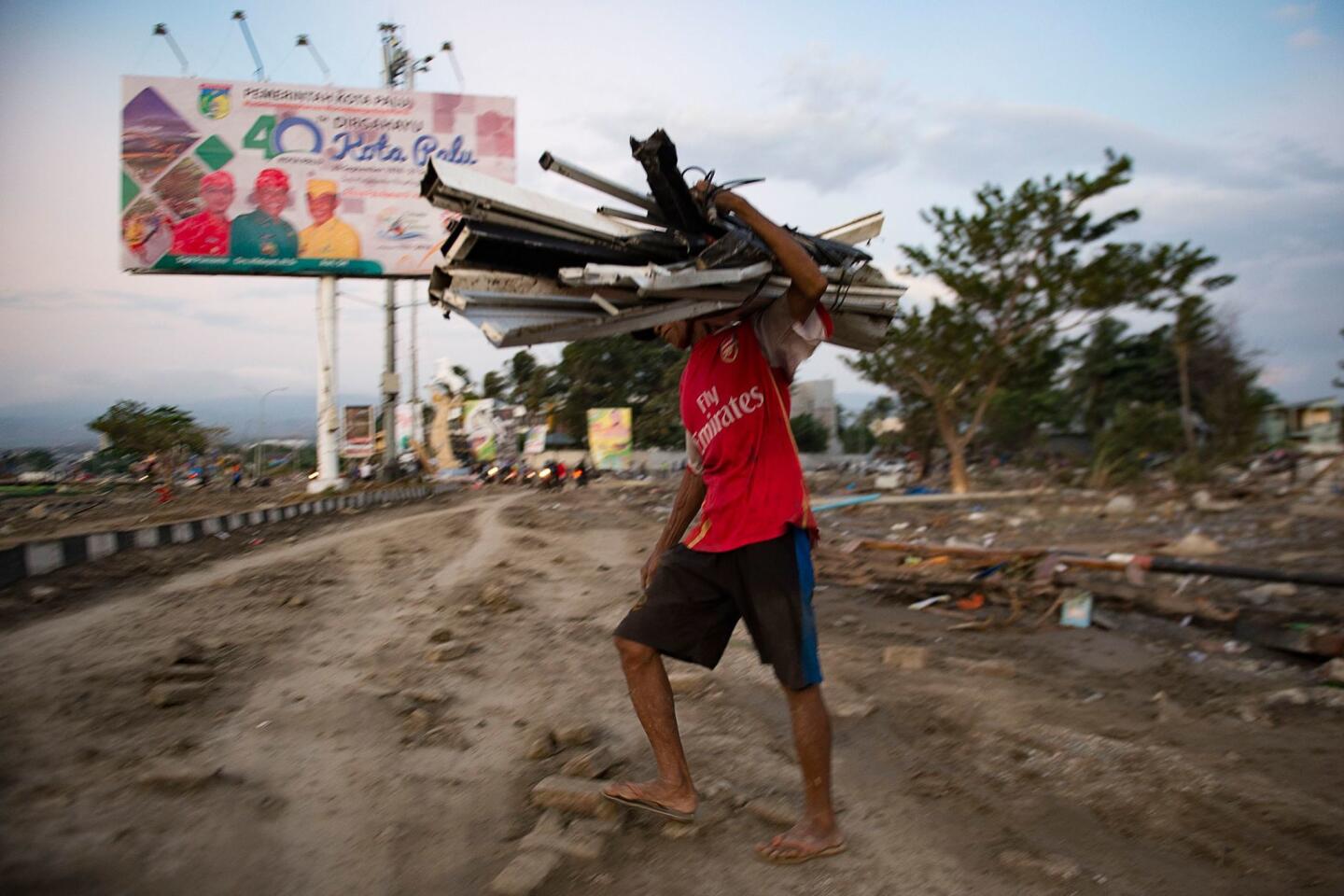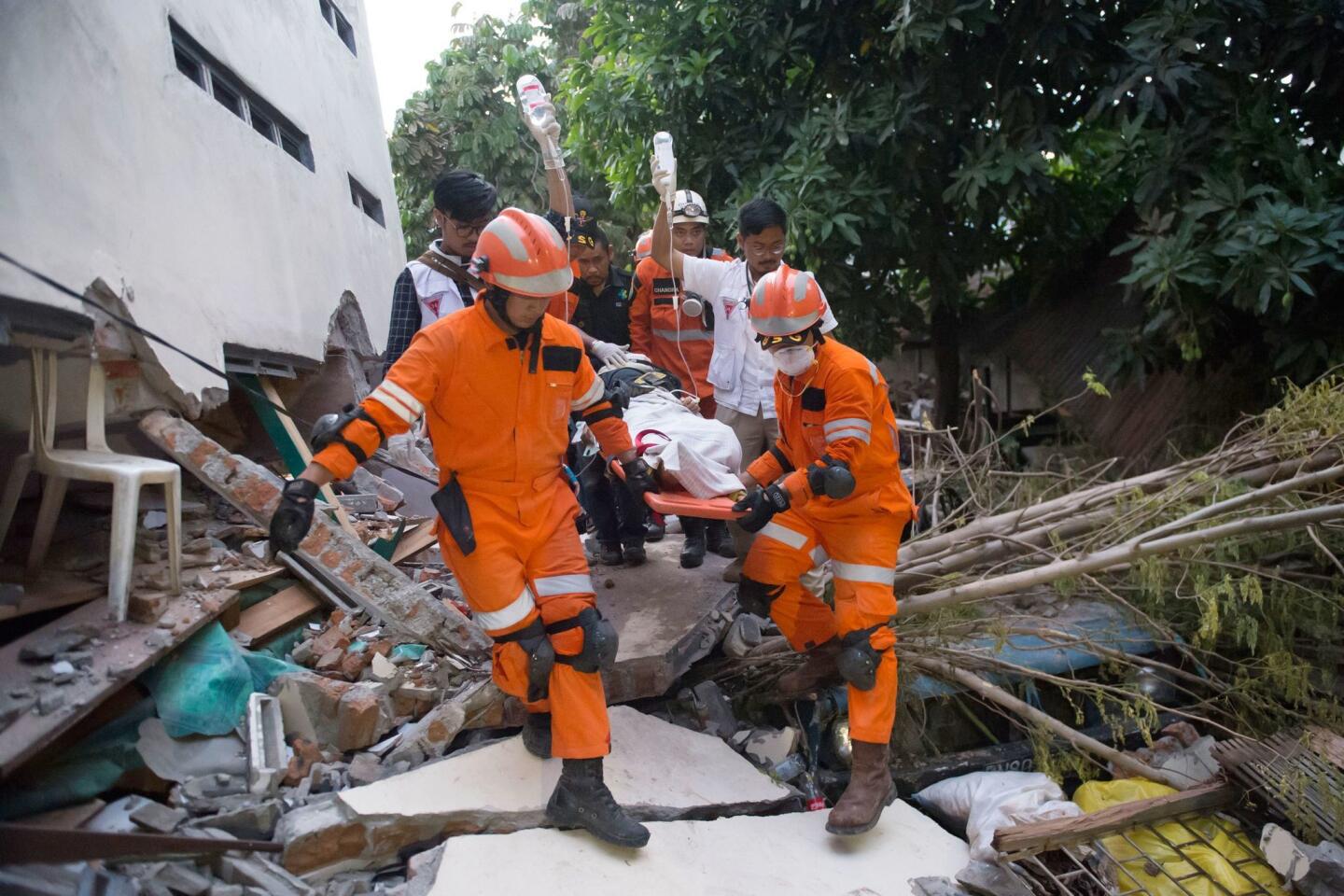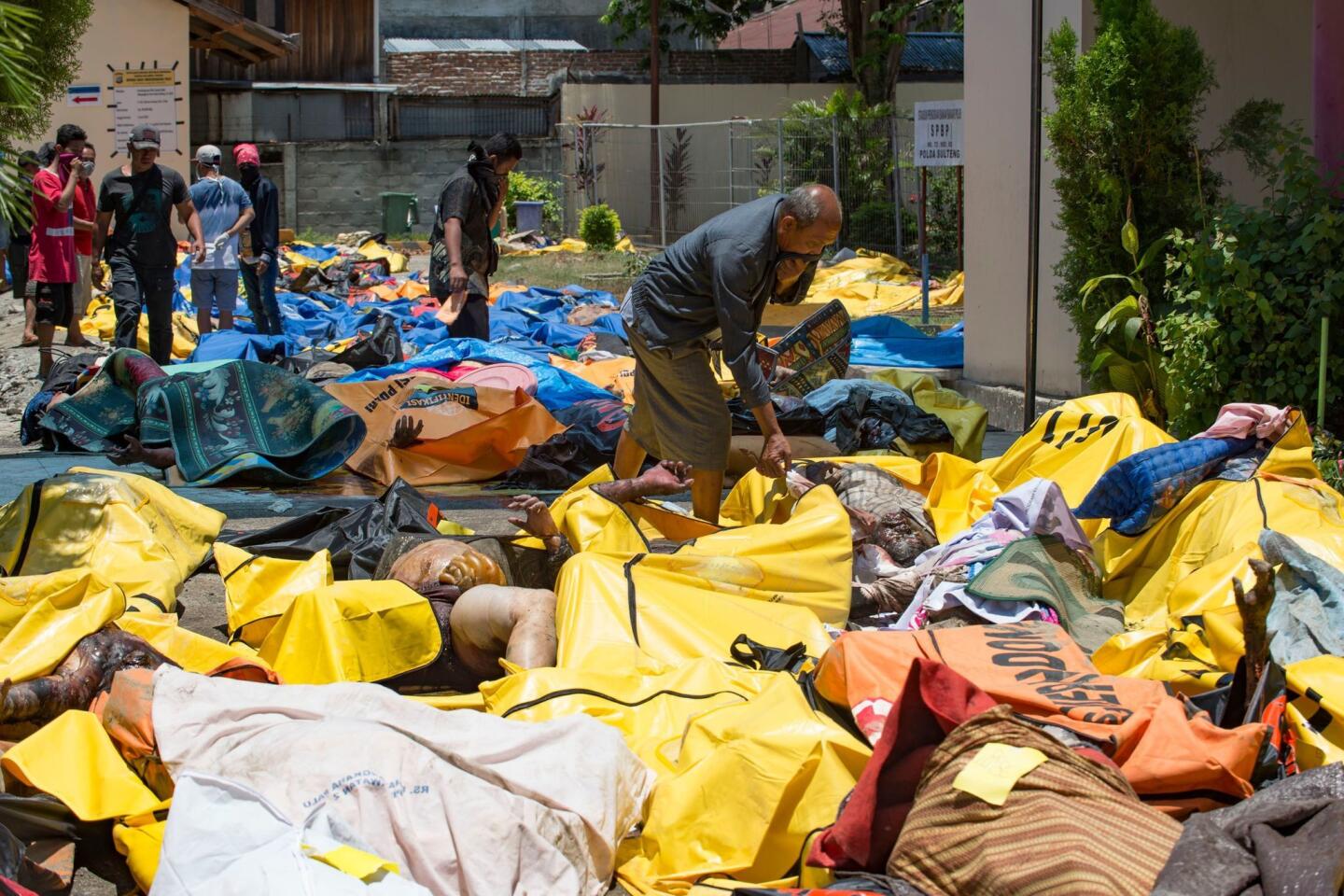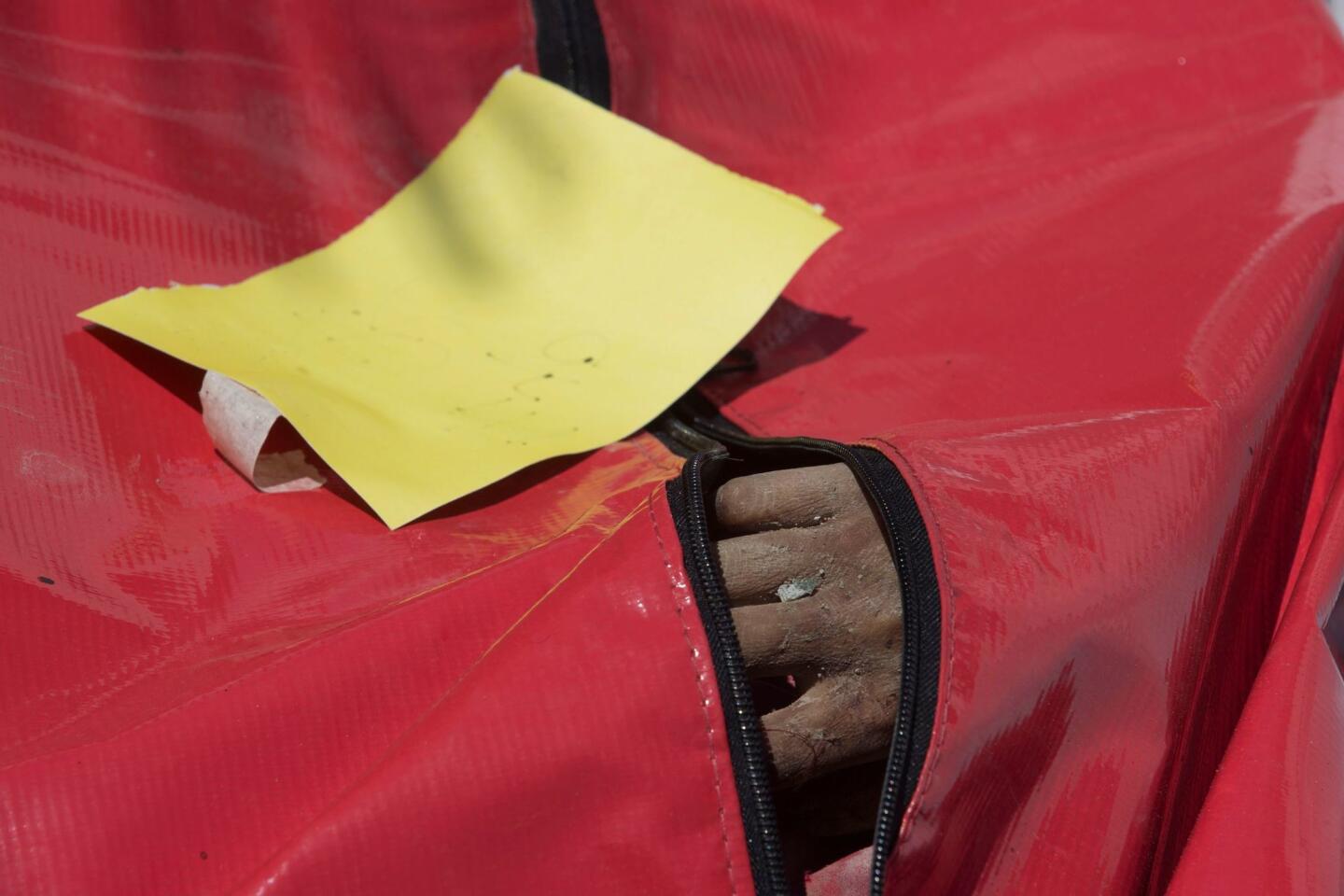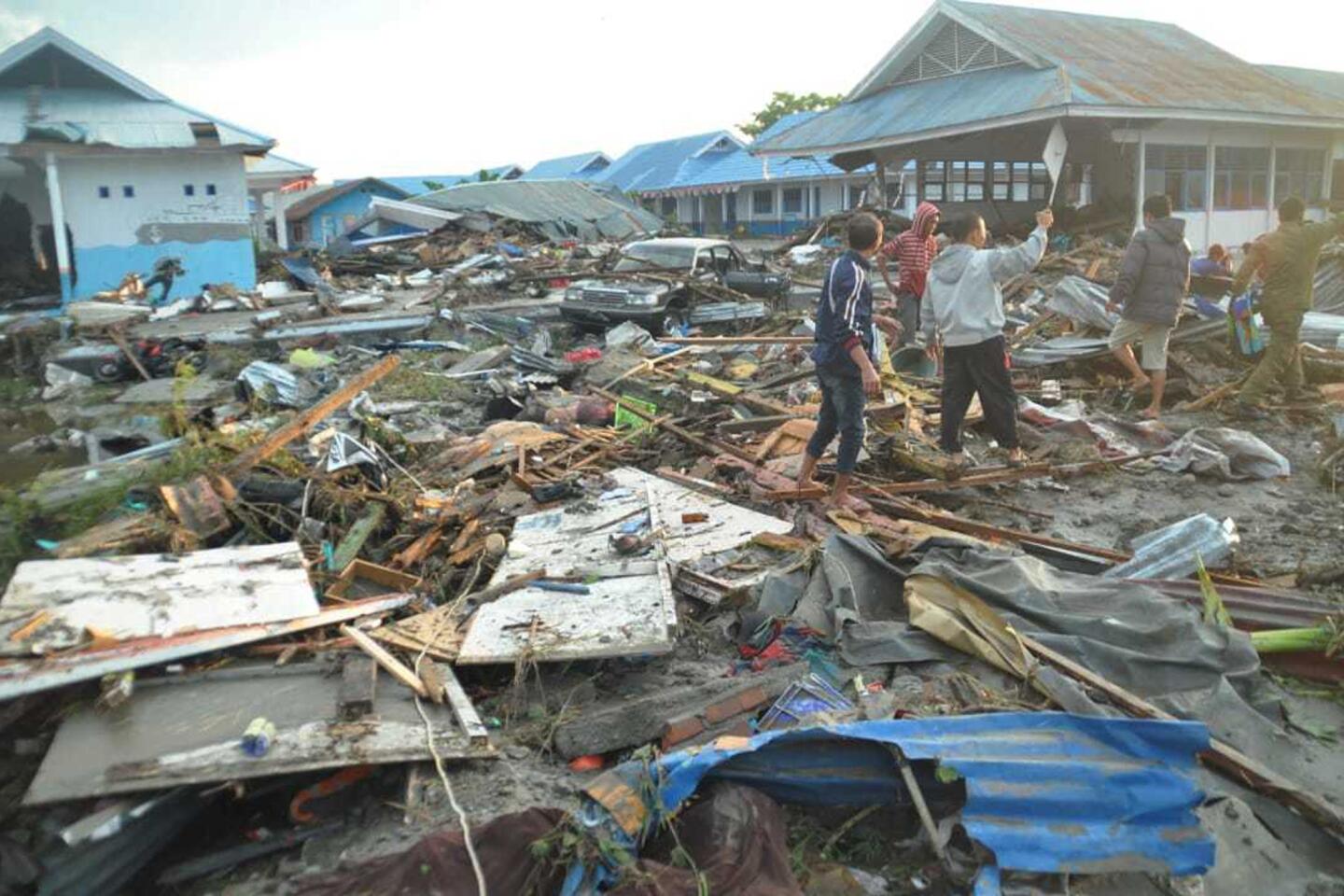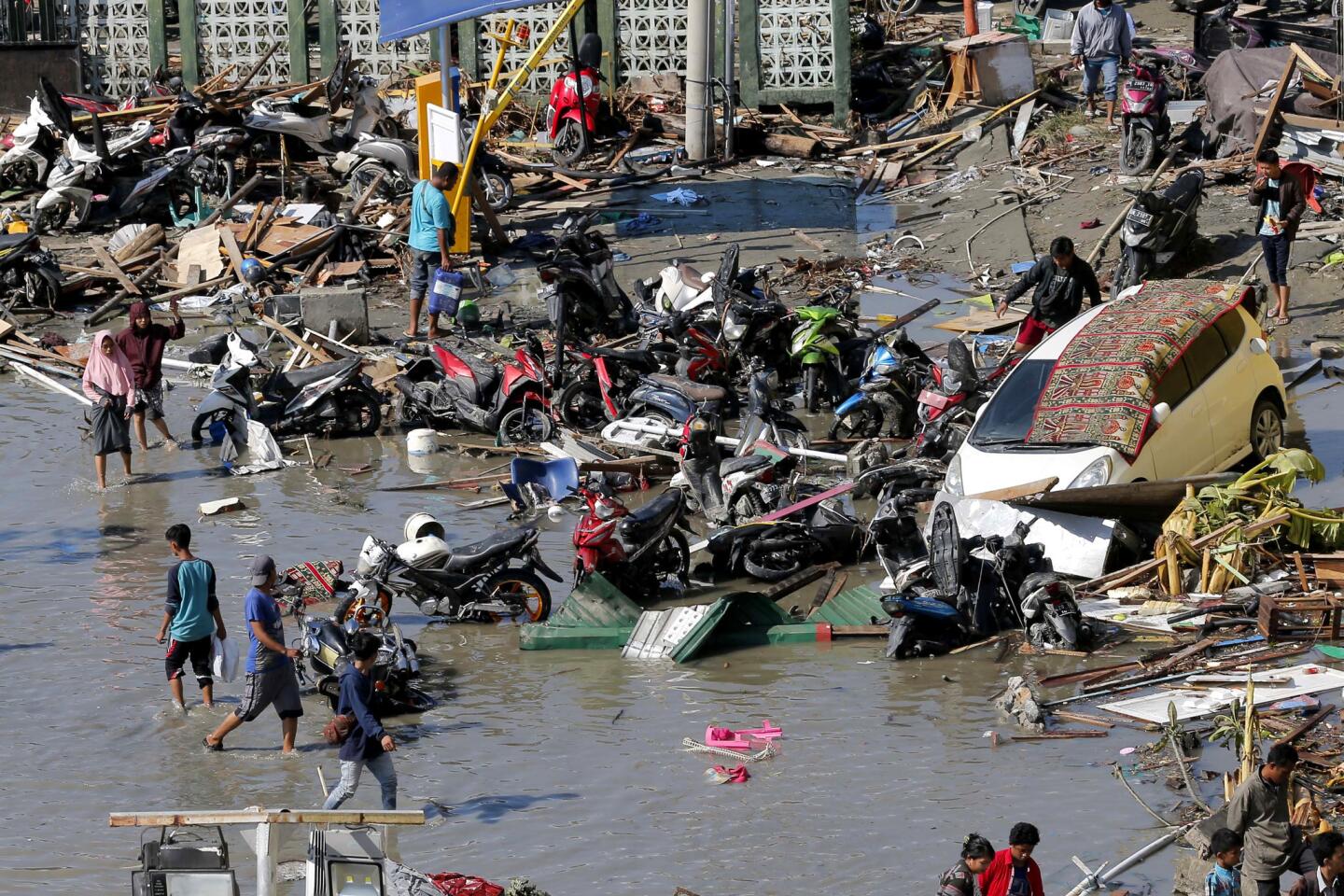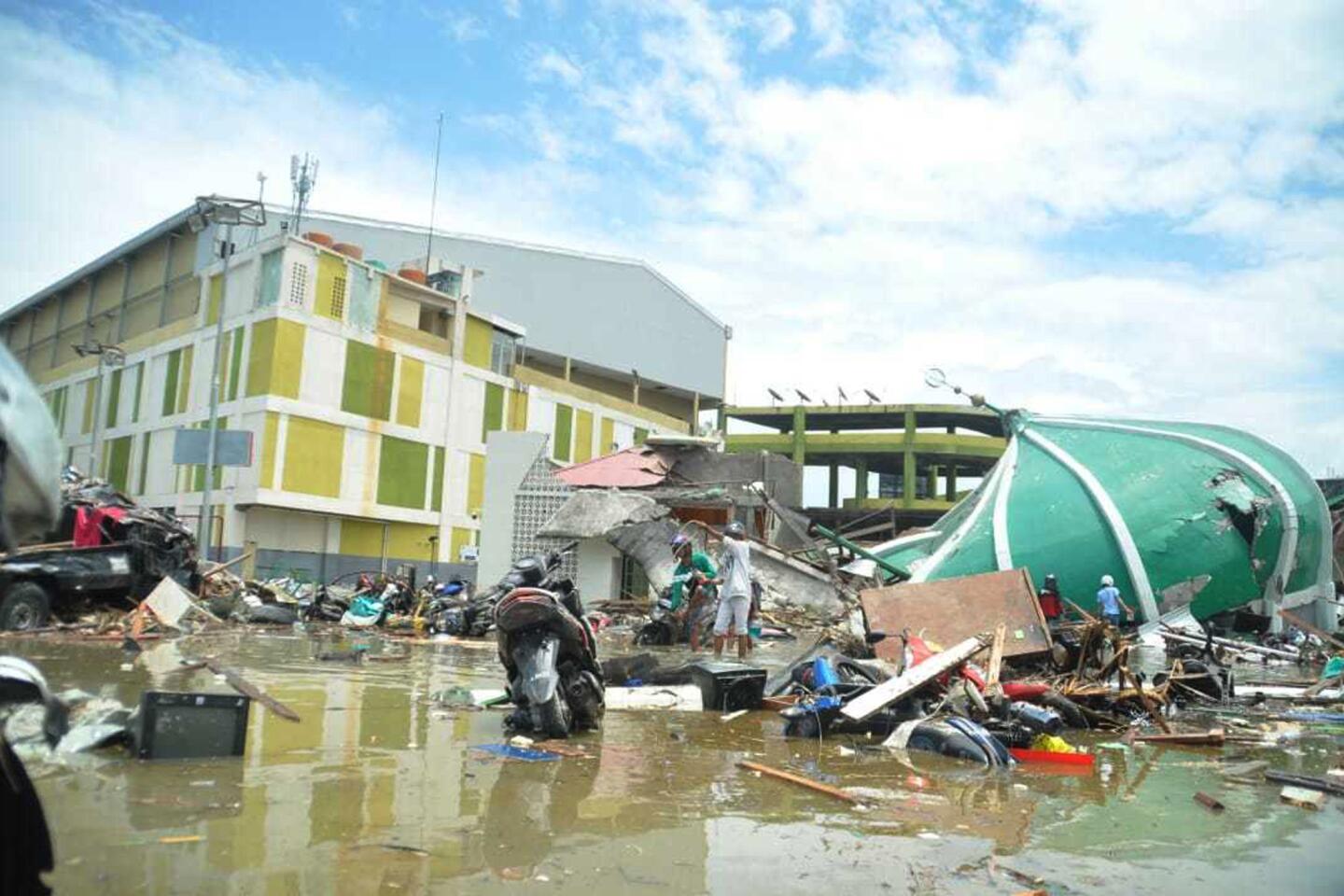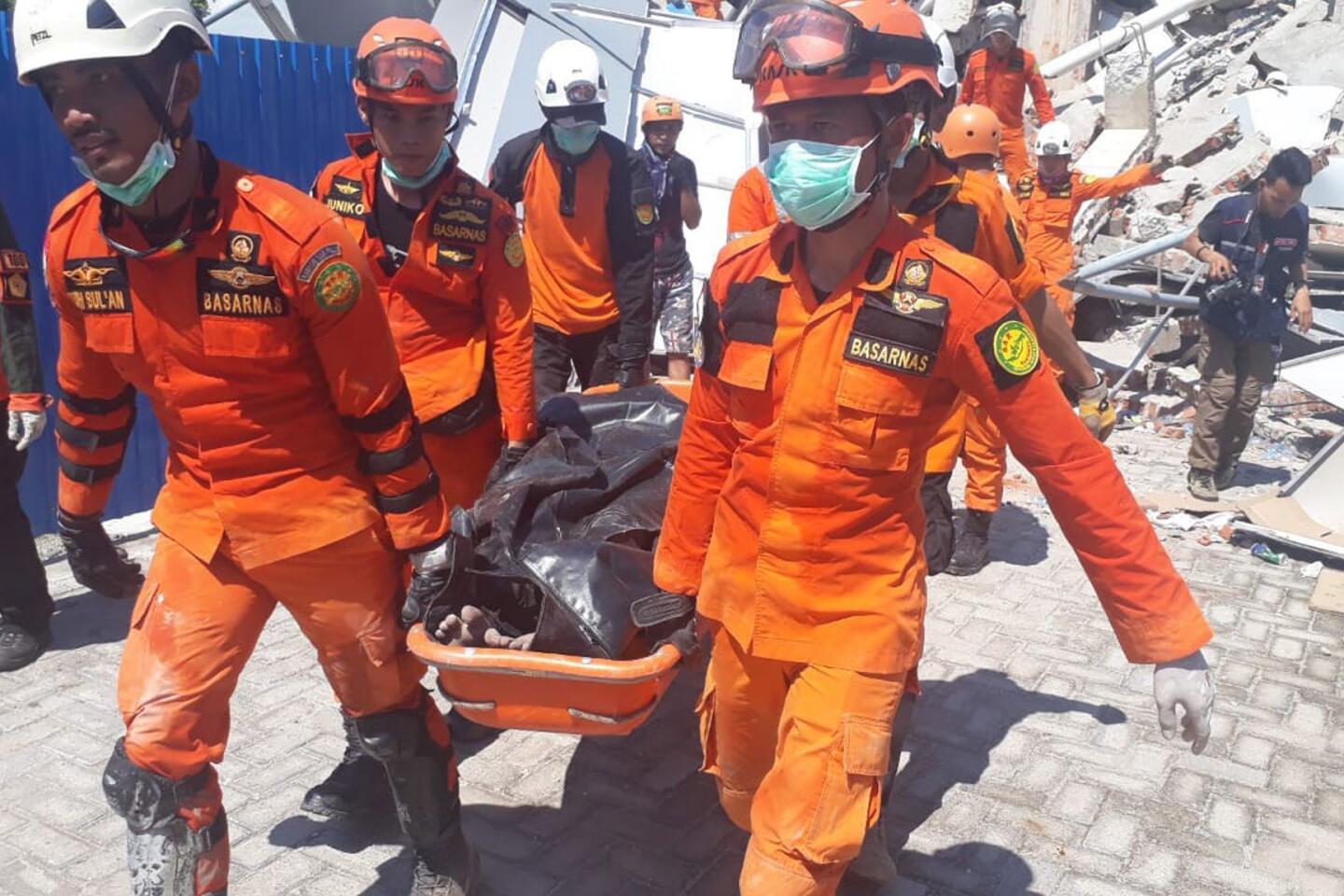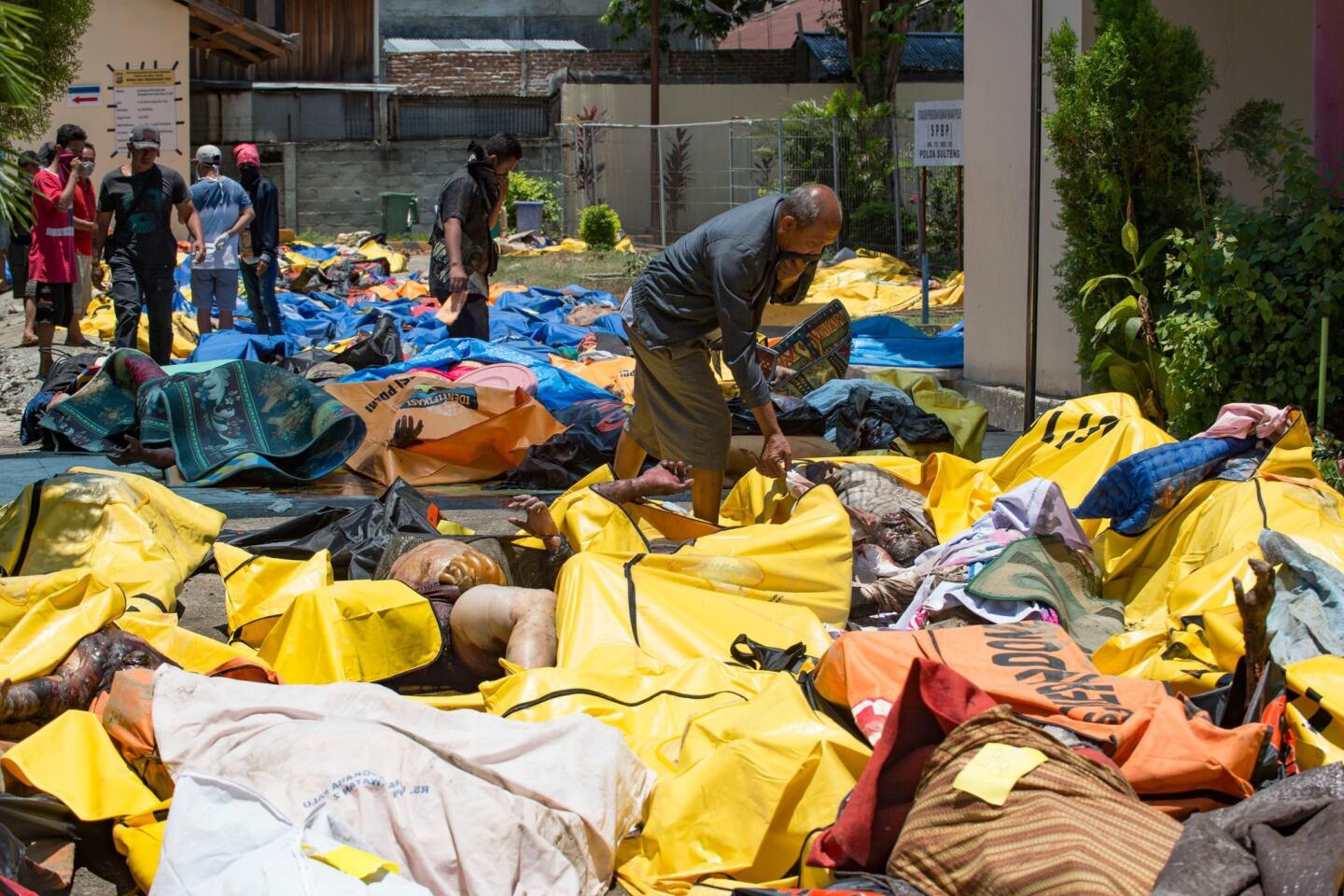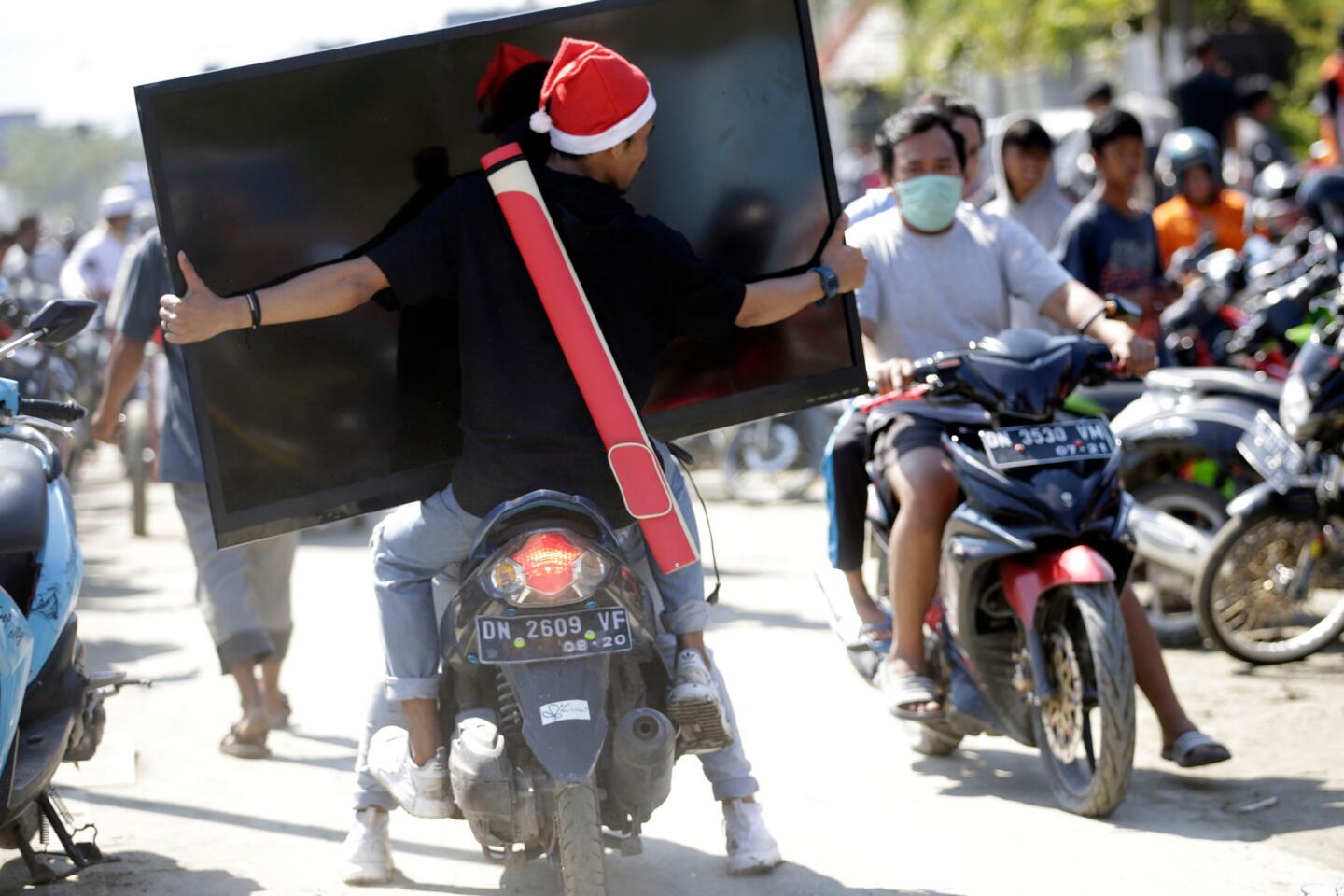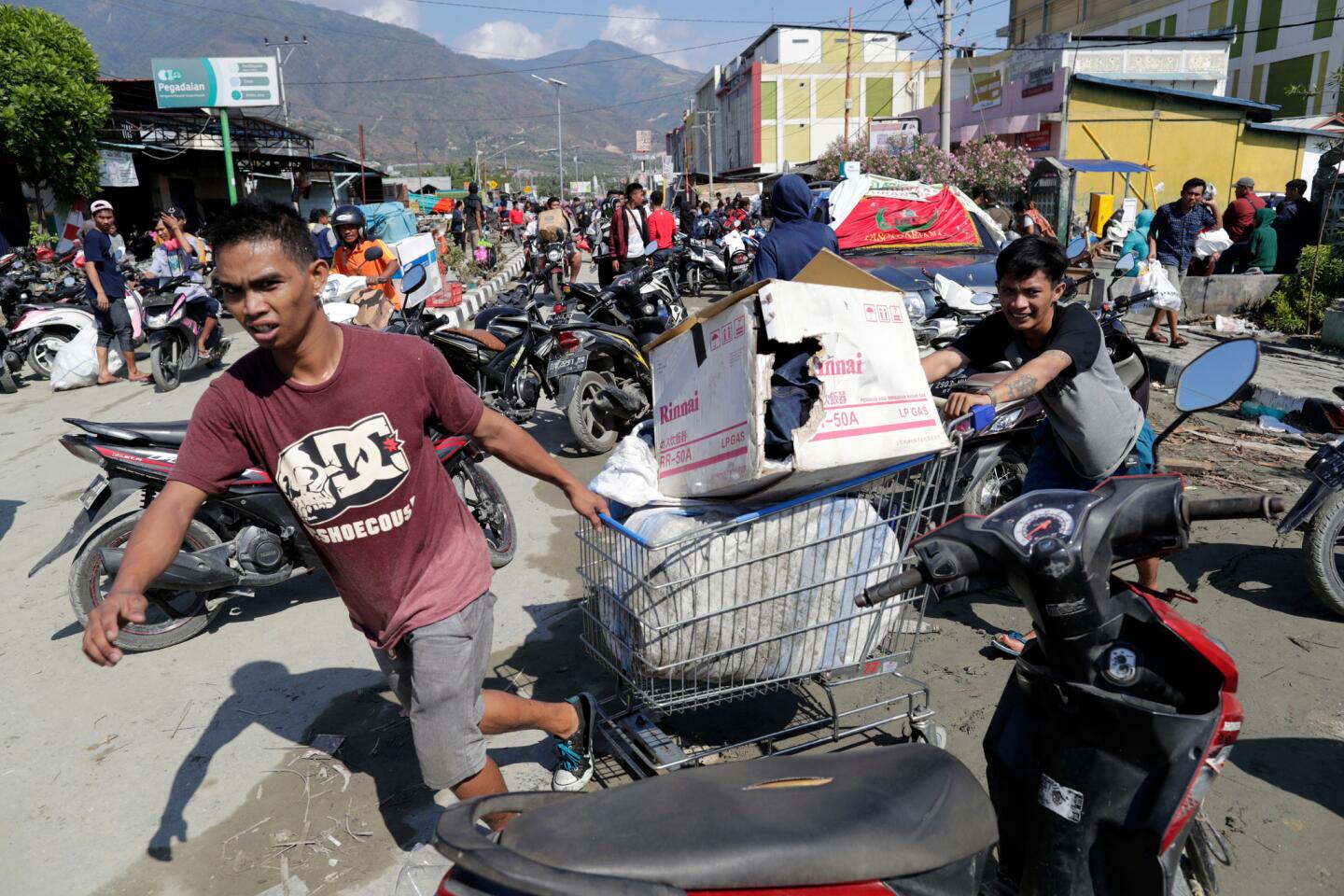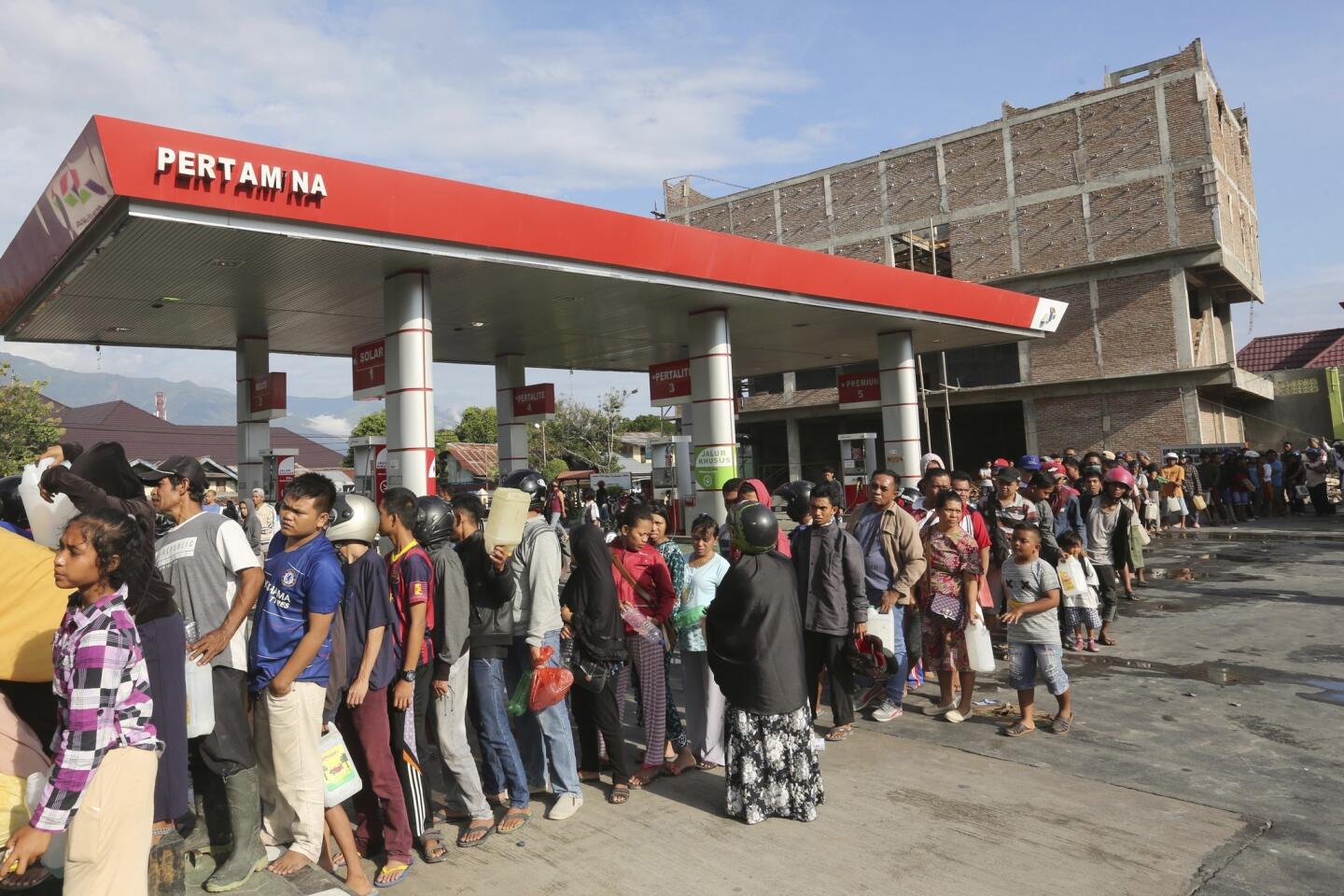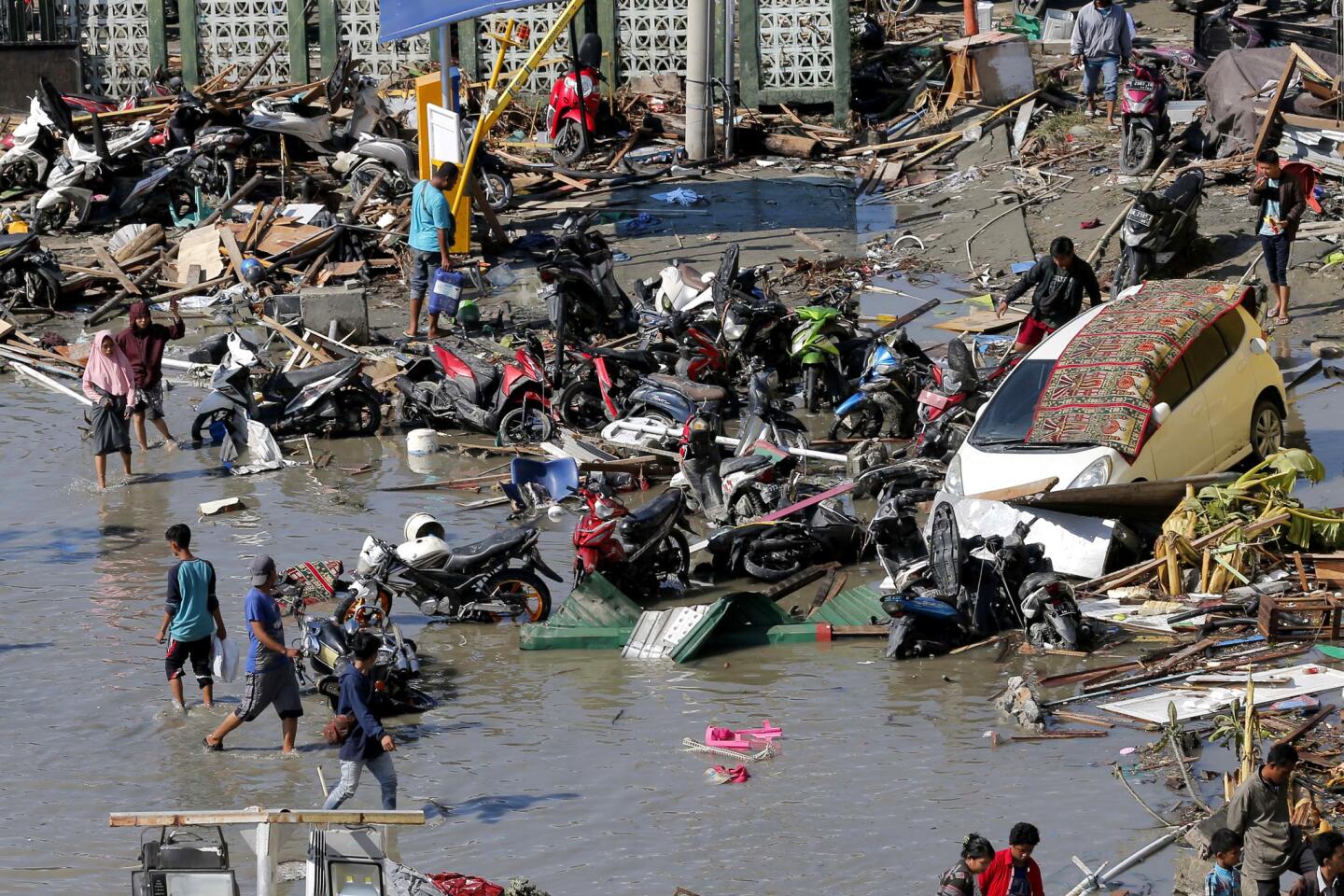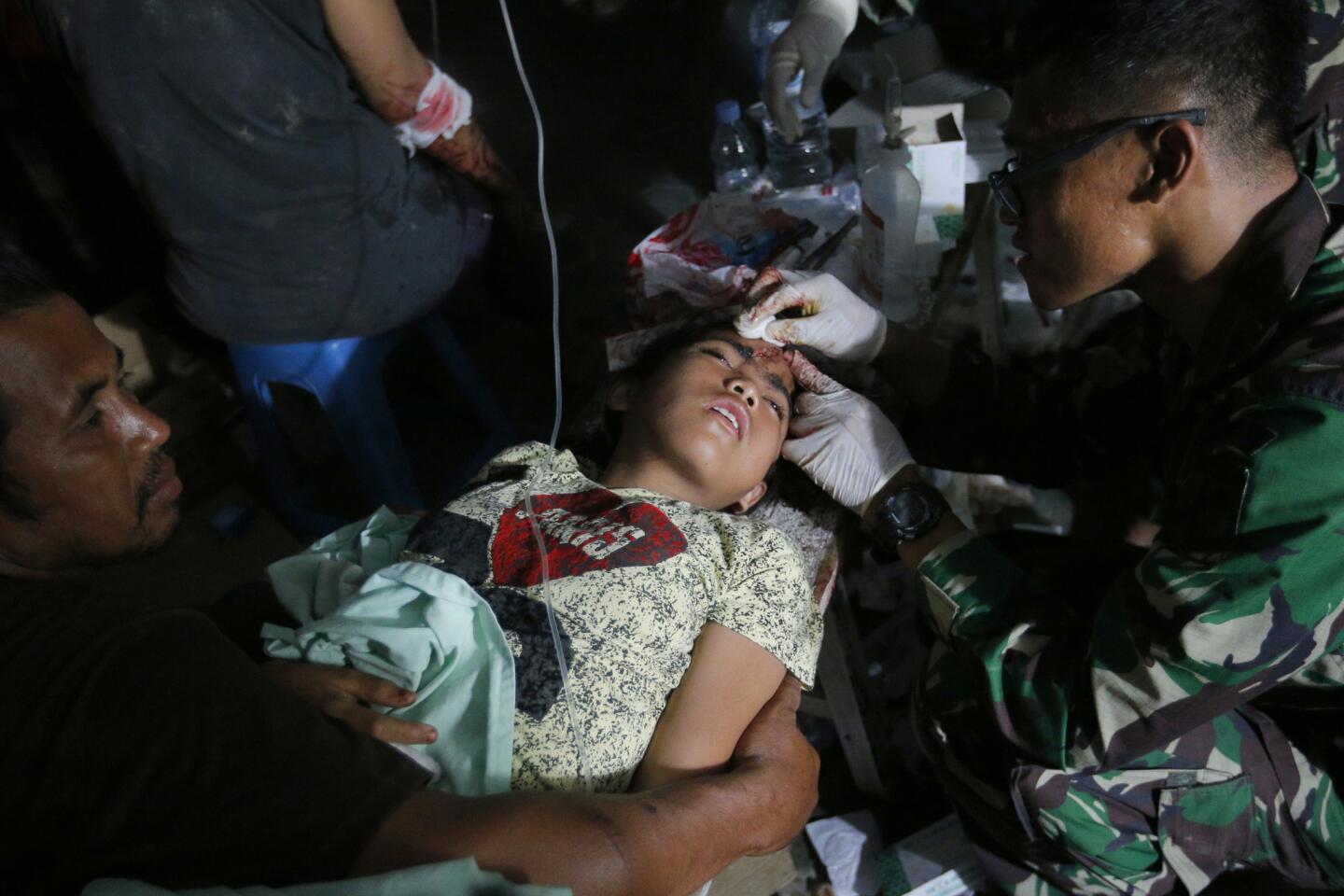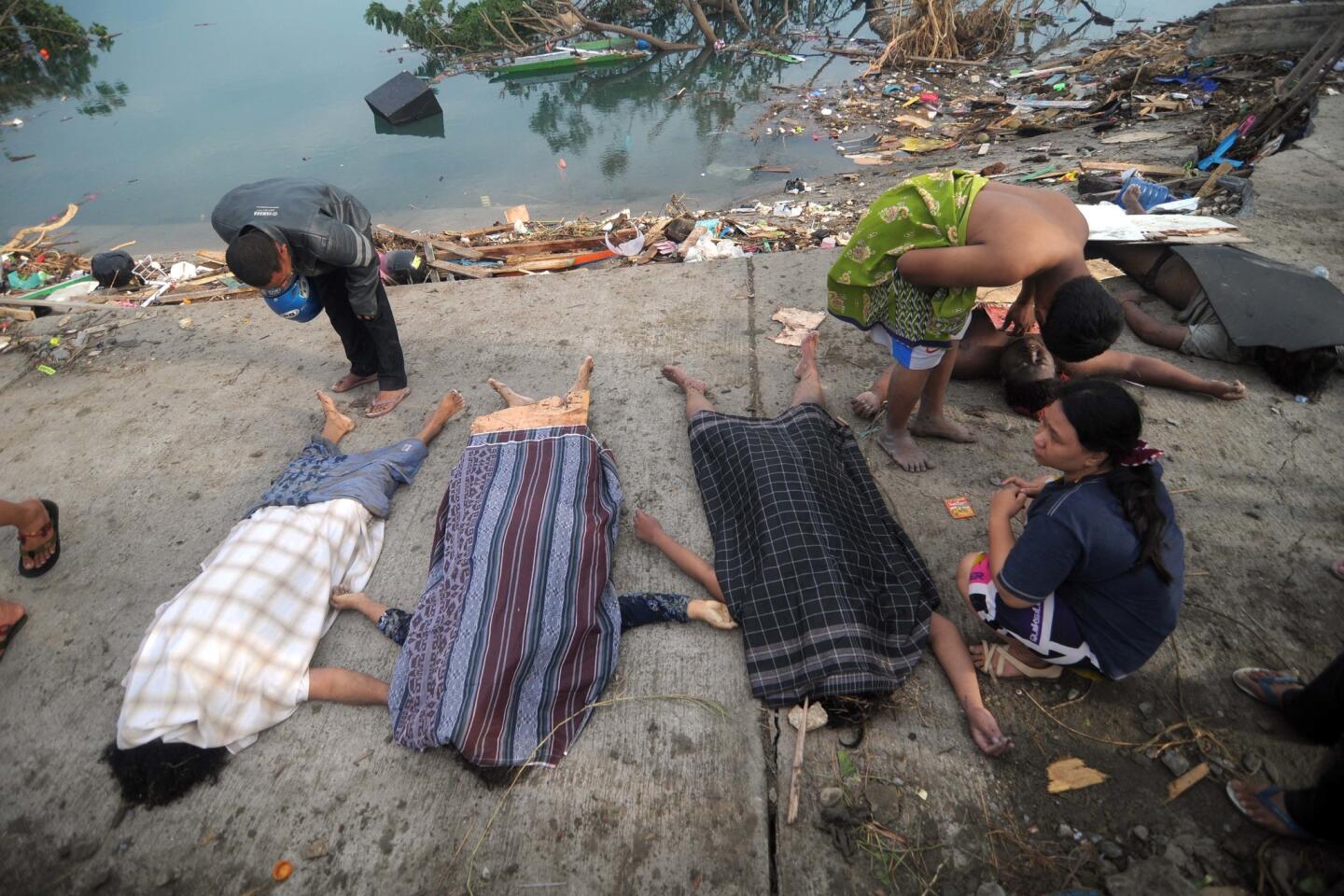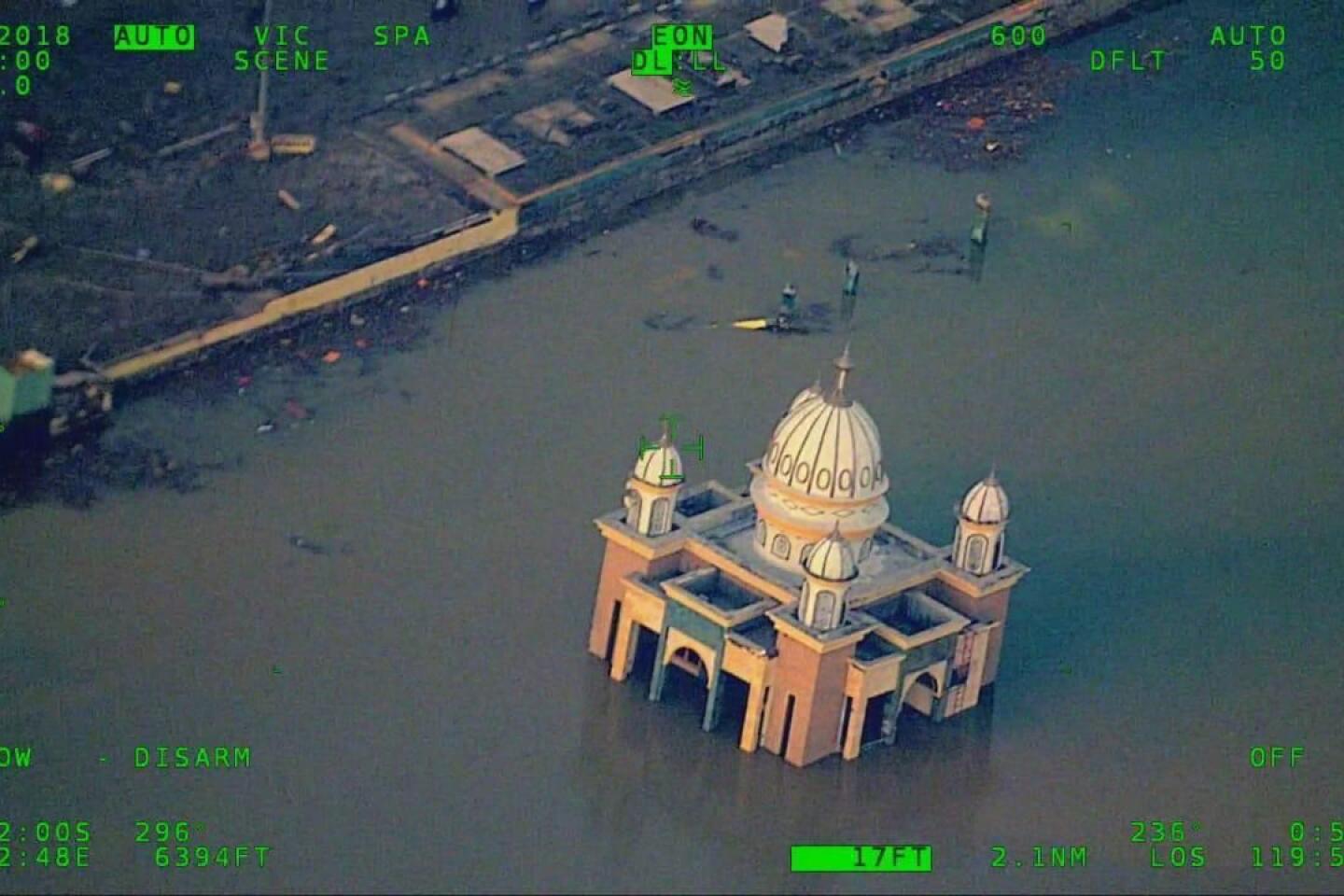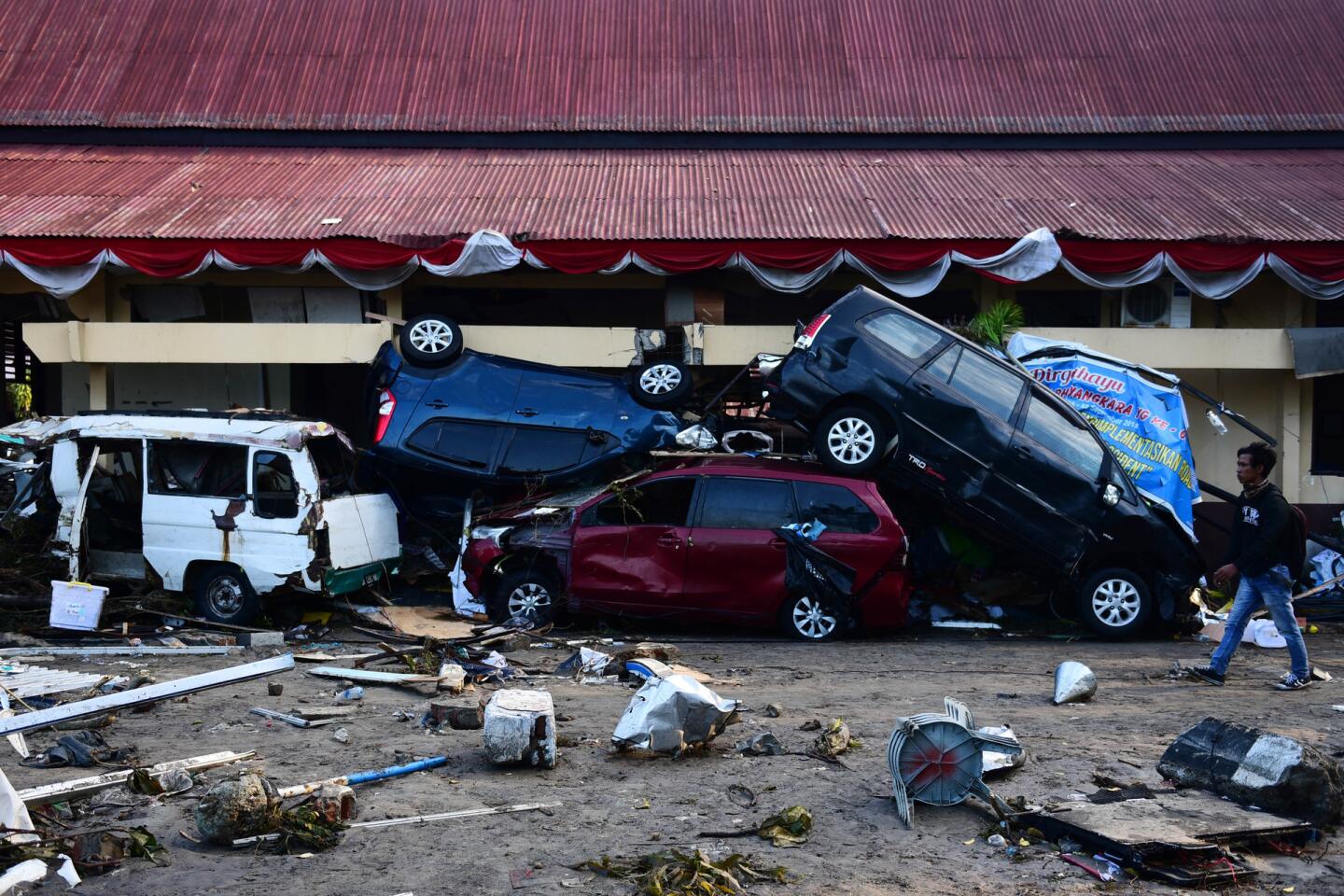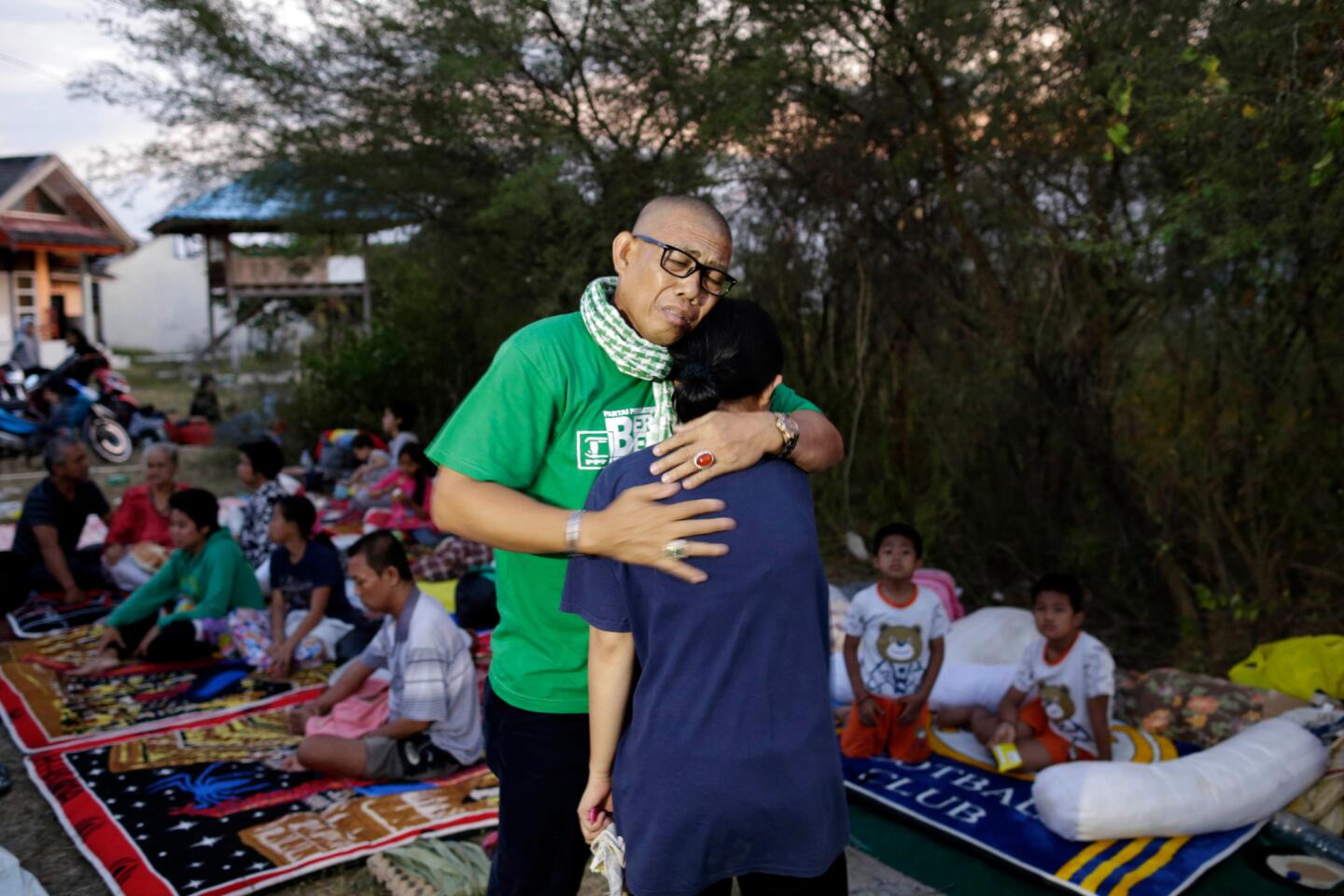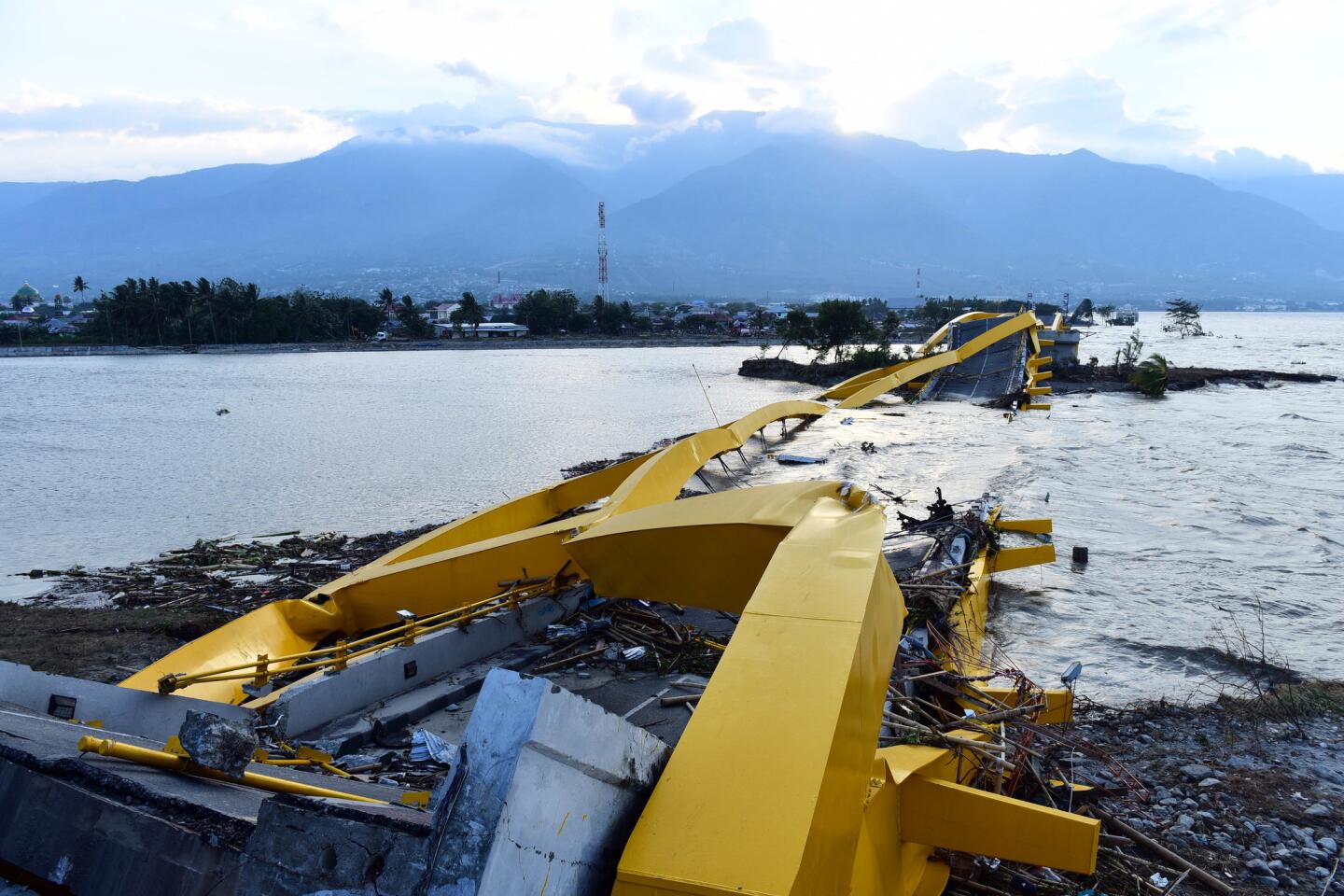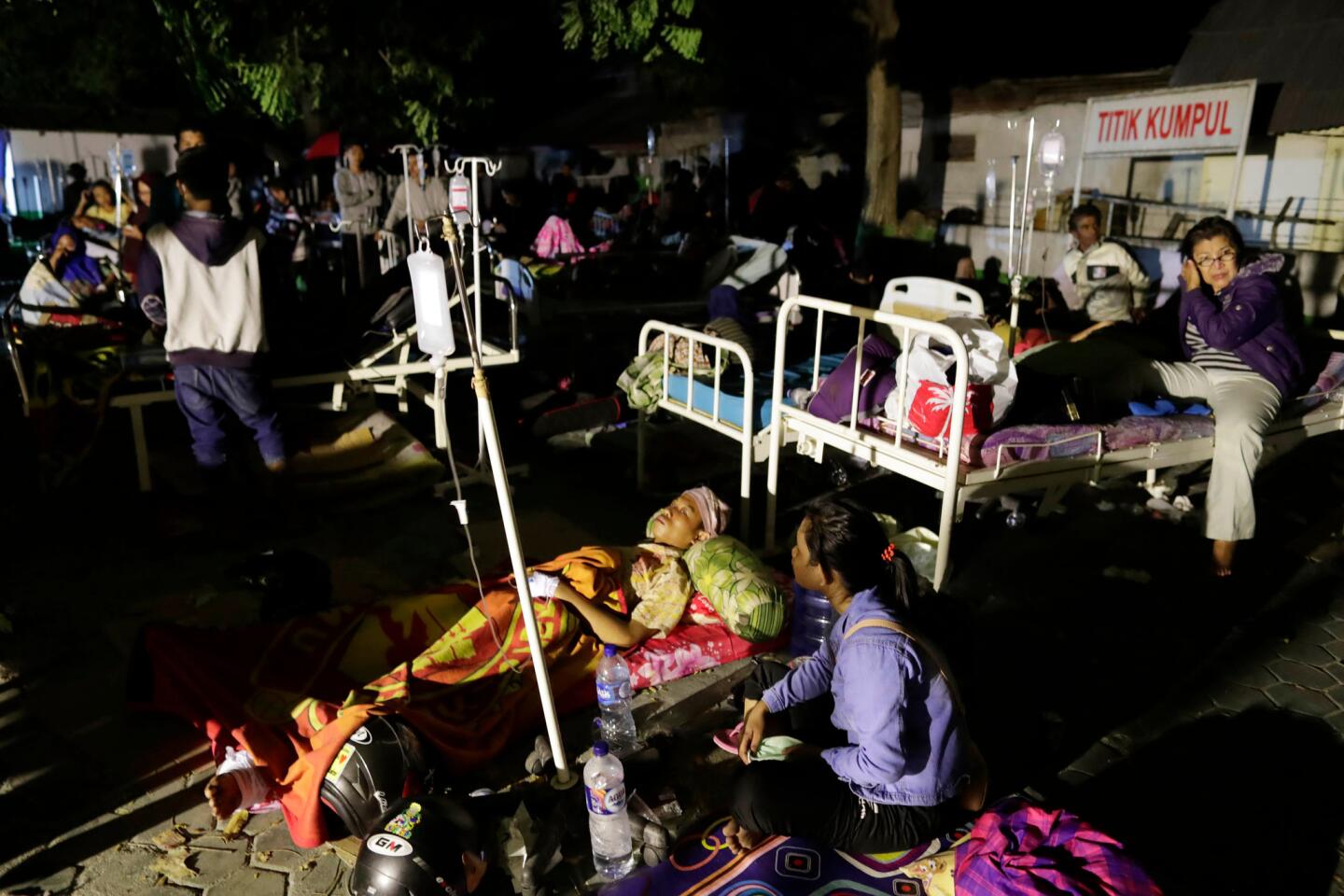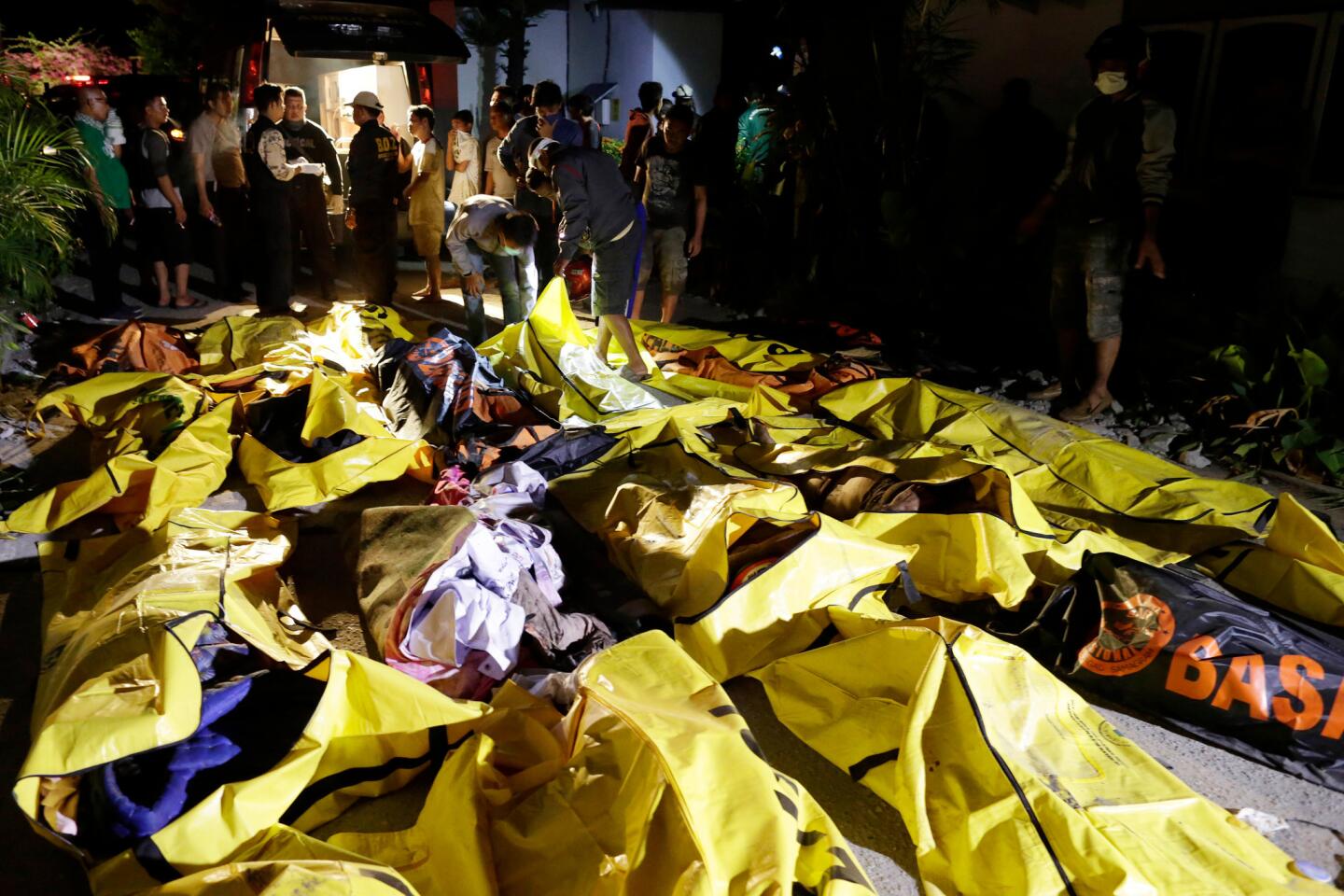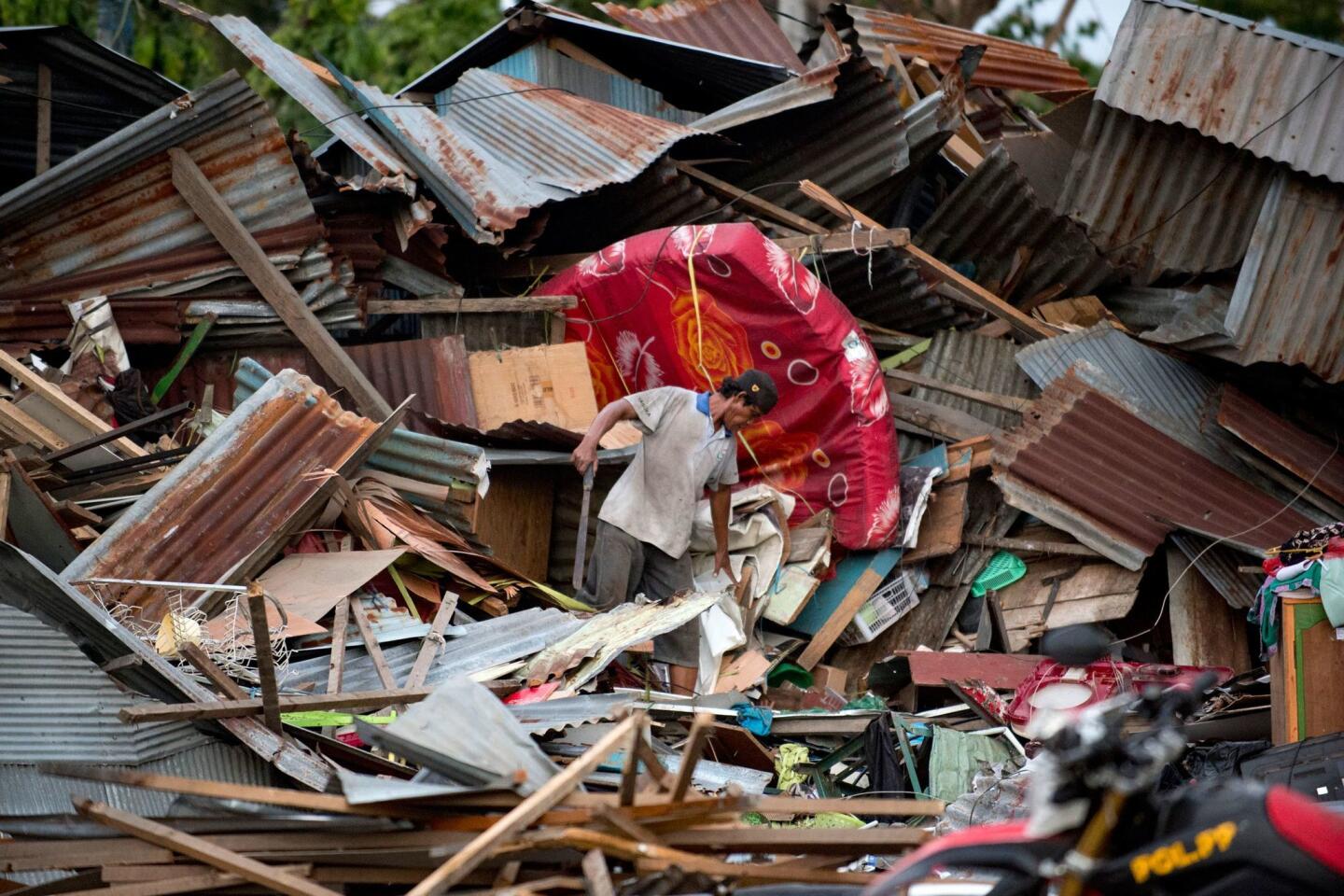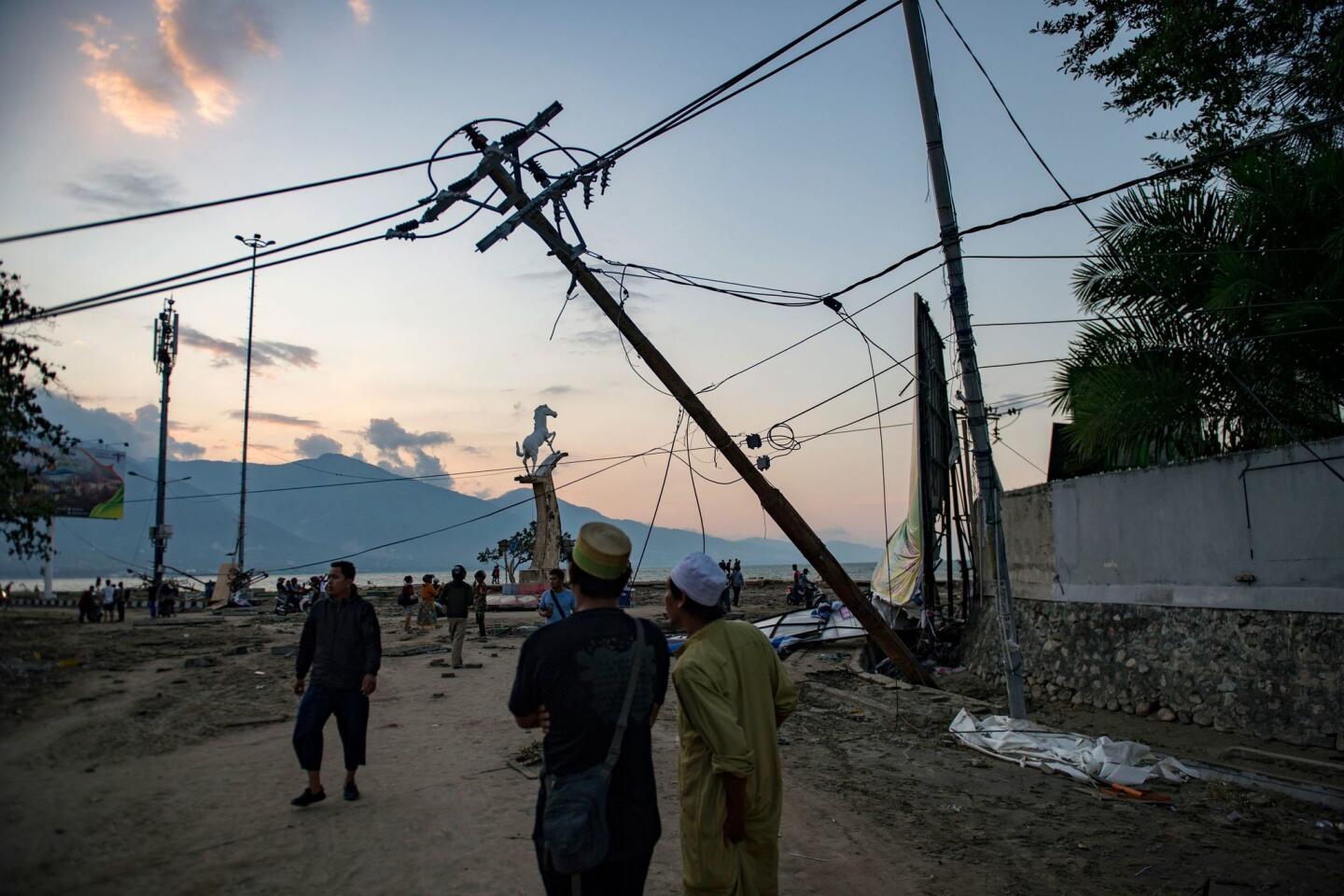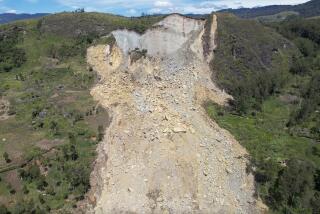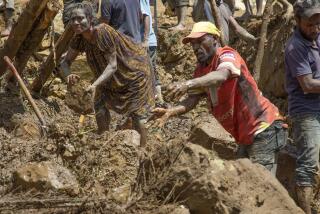Dozens of bodies pulled from mud as relief effort in Indonesia slowly expands
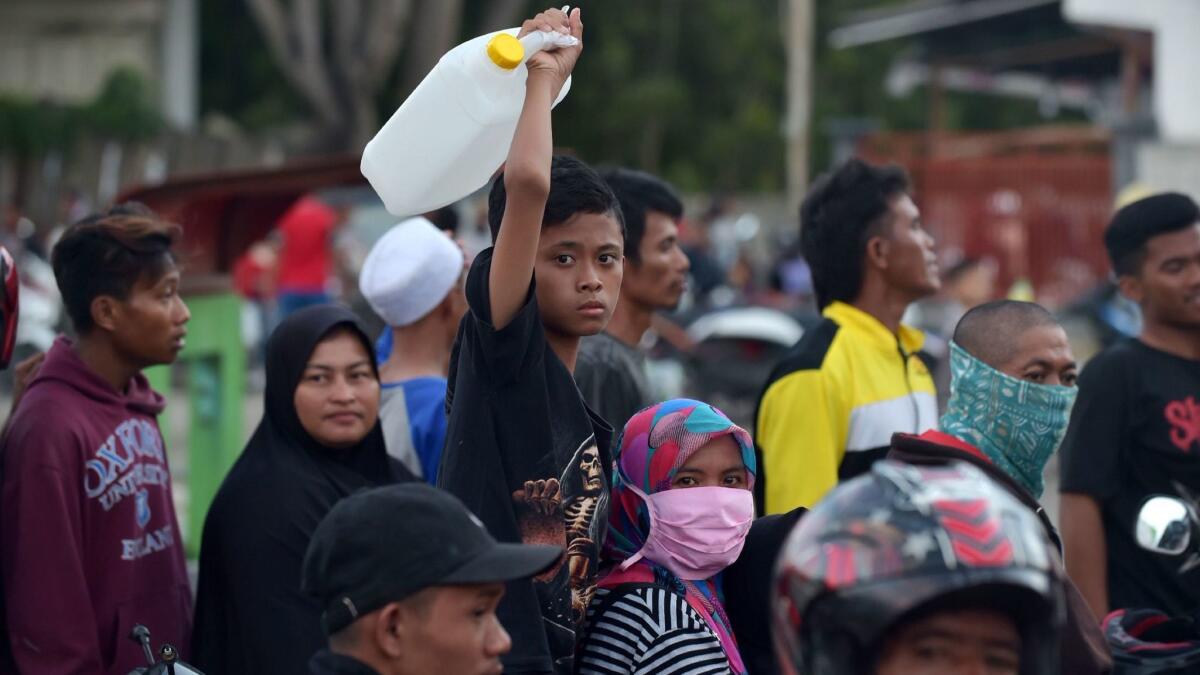
Reporting from Jakarta, Indonesia — Aid workers described scenes of destruction and desperation Monday in areas of Sulawesi they reached for the first time since a magnitude 7.5 earthquake and tsunami leveled parts of the Indonesian island, blocked roads and turned solid ground into mud.
Just outside the hard-hit town of Palu, the capital of Central Sulawesi province and hub of the relief effort, volunteers retrieved the bodies of 34 students from a Bible school in the town of Sigi Biromaru, said Aulia Arriani, head of communications at the Indonesian Red Cross.
The Red Cross team had “a hard time to evacuate the bodies as they had to walk through mud for one-and-a-half hours,” Aulia said.
At least 1,203 people were killed after Friday’s quake, according to an unofficial count by volunteers, nongovernmental groups and hospitals in Palu. The tremor unleashed a tsunami as high as 20 feet crashing into the coastline, destroying roads and bridges, downing cellphone towers and washing away thousands of houses.
Indonesian officials said they had tallied 844 dead, but warned that number would increase as information continued to emerge from hard-to-reach areas. Relief agencies said more than 300,000 people were thought to be homeless, many sleeping in the streets of Palu as aftershocks rattled the region.
Terrifying videos shot on cellphones and disseminated via social media showed the earthquake apparently turning solid ground into mud, a phenomenon known as liquefaction. It is feared that hundreds of people remain buried in mud and debris in Palu after homes collapsed as the earthquake caused the ground to give way.
“We don’t know how many victims could be buried there, it’s estimated hundreds,” Sutopo Nugroho, spokesman for the national disaster agency, told reporters in Jakarta, the capital.
With bodies piling up at medical facilities and concerns rising about disease, authorities in Palu began a mass burial, lining the dead side-by-side in a giant, freshly dug grave that could accommodate hundreds.
The burials would reduce the risk of cholera and other illnesses spreading, officials said, and were in line with Muslim custom, which requires burials soon after death.
The earthquake ranks as the deadliest since a magnitude 7.8 quake struck Nepal in 2015, killing more than 8,000 people. Aid groups say that more than 1.5 million people have been affected by the disaster, with one-third having lost family members, houses or livelihoods, according to international agencies helping in the response.
“We are shocked by the number of people that have perished, and we fear this number will get much worse,” said Helen Vanwel, the Indonesia country director for the CARE relief agency.
Sulawesi lies roughly 1,000 miles from Jakarta and is one of more than 17,000 islands that make up Indonesia. The archipelago nation lies on an area of heavy tectonic activity known as the Pacific “Ring of Fire,” and has suffered a series of deadly earthquakes over the past two decades.
Relief supplies were going into Palu on a limited number of military flights from Jakarta and arriving slowly by road from Makassar, 500 miles away in the island’s south. Other roads around the city were damaged by the earthquake or blocked by ensuing landslides.
Without excavators or other heavy equipment to move debris, people in Palu were seen digging by hand to try to free victims trapped under downed buildings, including hotels and malls. Efforts have focused on the Roa-Roa hotel, an eight-story building in Palu where relief workers briefly heard voices coming from beneath the rubble on Saturday.
Two bodies were retrieved from under the downed hotel on Monday, Rafiq Ashori, the Indonesian Red Cross disaster preparedness head, said by phone from Palu.
According to footage shared on social media, survivors were stopping relief convoys and crowds were gathering at Palu’s airport demanding to board flights to Jakarta.
A statement from a network of volunteers helping to dig through rubble in the hope of finding survivors in Palu described “a dead city” where water and gasoline are rare, adding that there was “looting everywhere.”
“There is still no aid received yet, except for several boxes of instant noodles from some volunteers,” Sukmawati, a 50-year-old woman whose brother died in the disaster and whose aunt is still unaccounted for, said by phone from Palu. Sukmawati has only one name.
“Drinking water is also very limited,” she said, adding that those left homeless “have to be self-sufficient.”
Convoys of aid destined for previously hard to access regions were expected to leave from Palu early Tuesday, with government security support due to fears of looting.
Authorities have so far turned a blind eye to people taking what they need from damaged shops to survive, saying that business owners will be compensated.
But the Indonesian Retailers Assn., a trade group, lashed out at the government.
“We are concerned about the government’s arrogance in allowing people to loot goods from retail outlets … without coordinating with their owners or management, or with the association,” chairman Roy Nicholas Mandey told Kompas, an Indonesian newspaper.
Visiting the stricken region Sunday, President Joko Widodo asked survivors to be patient given the damage to transport and communications inflicted by the disaster.
By Monday, as the clamor for help grew louder, Widodo, who is up for reelection in April, said the government would immediately send “as much food as possible.” His investment minister Thomas Lembong announced that the government would accept aid from foreign governments to help with the response.
Special correspondent Roughneen reported from Jakarta and Times staff writer Bengali from New Delhi.
Follow @SBengali on Twitter for more news from South Asia
UPDATES:
11:45 a.m.: This article was updated throughout with staff reporting.
This article was originally published at 8 a.m.
More to Read
Sign up for Essential California
The most important California stories and recommendations in your inbox every morning.
You may occasionally receive promotional content from the Los Angeles Times.
